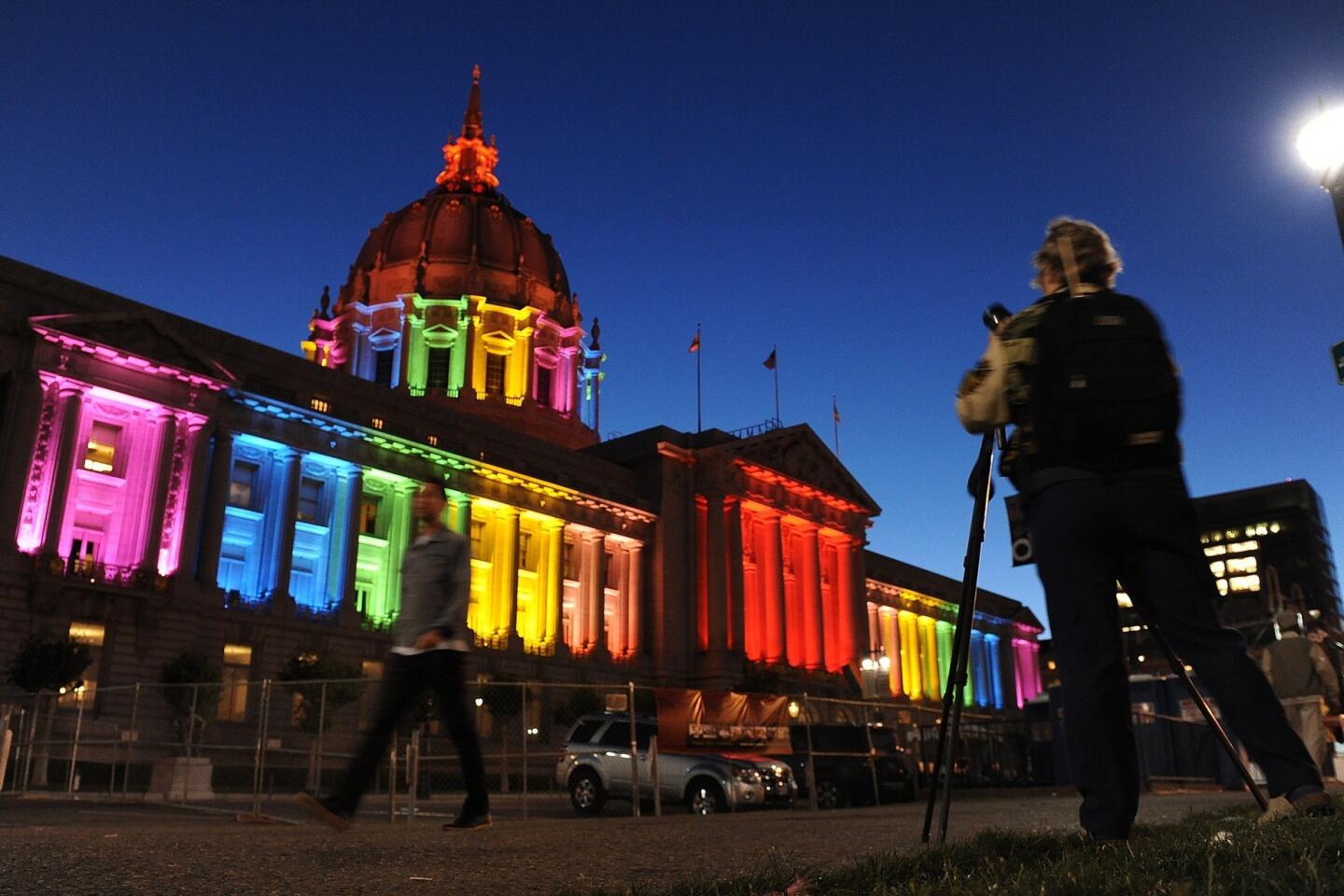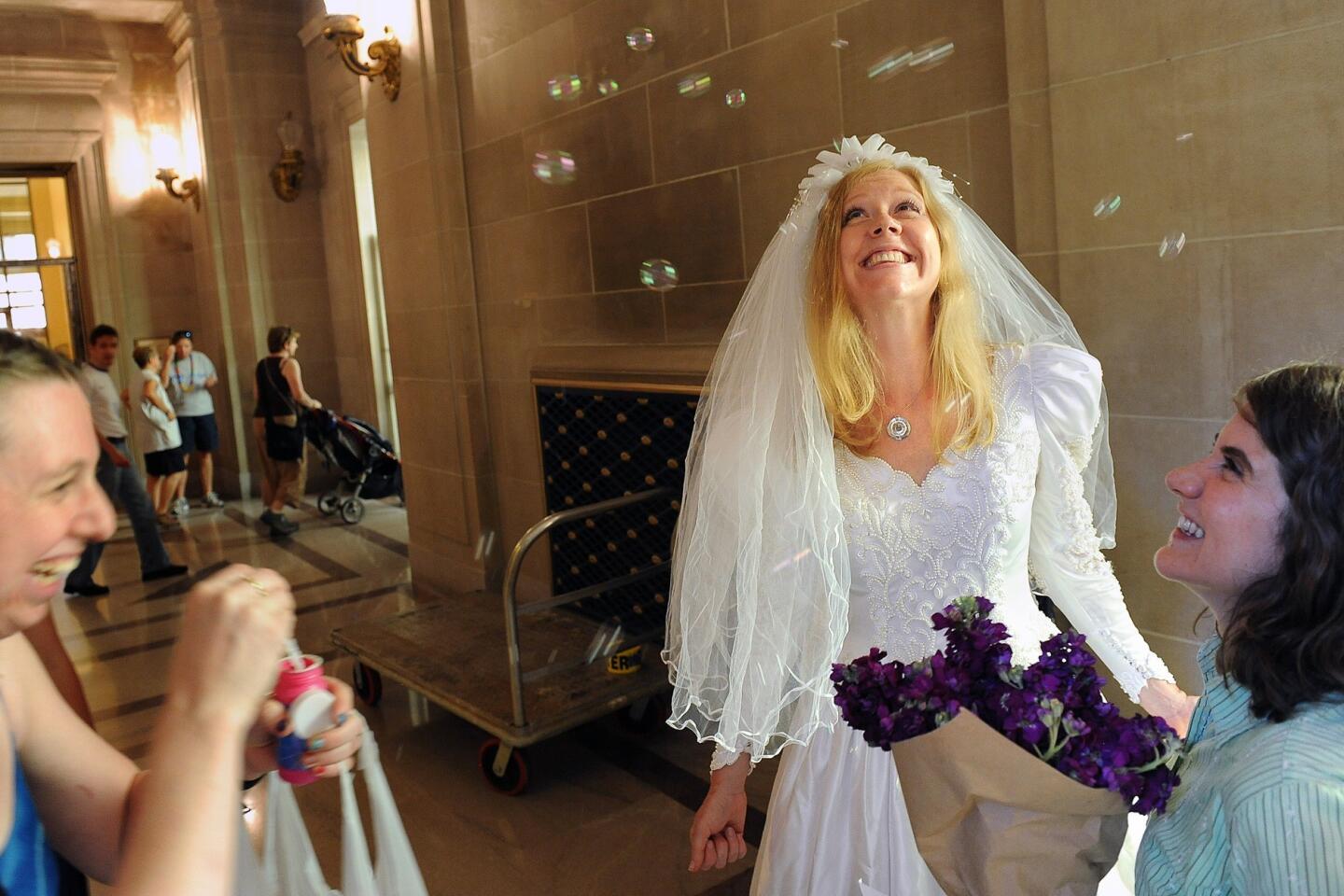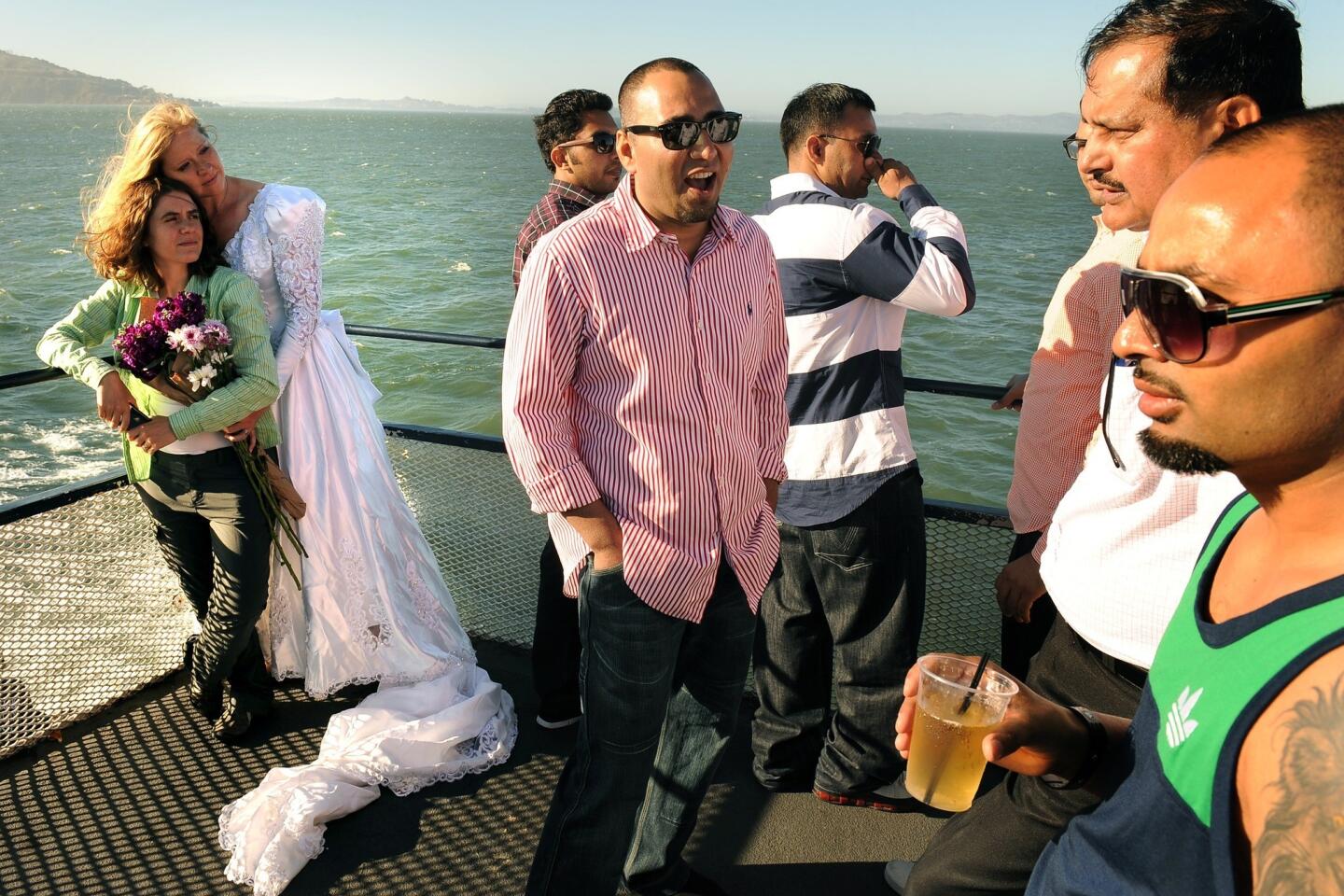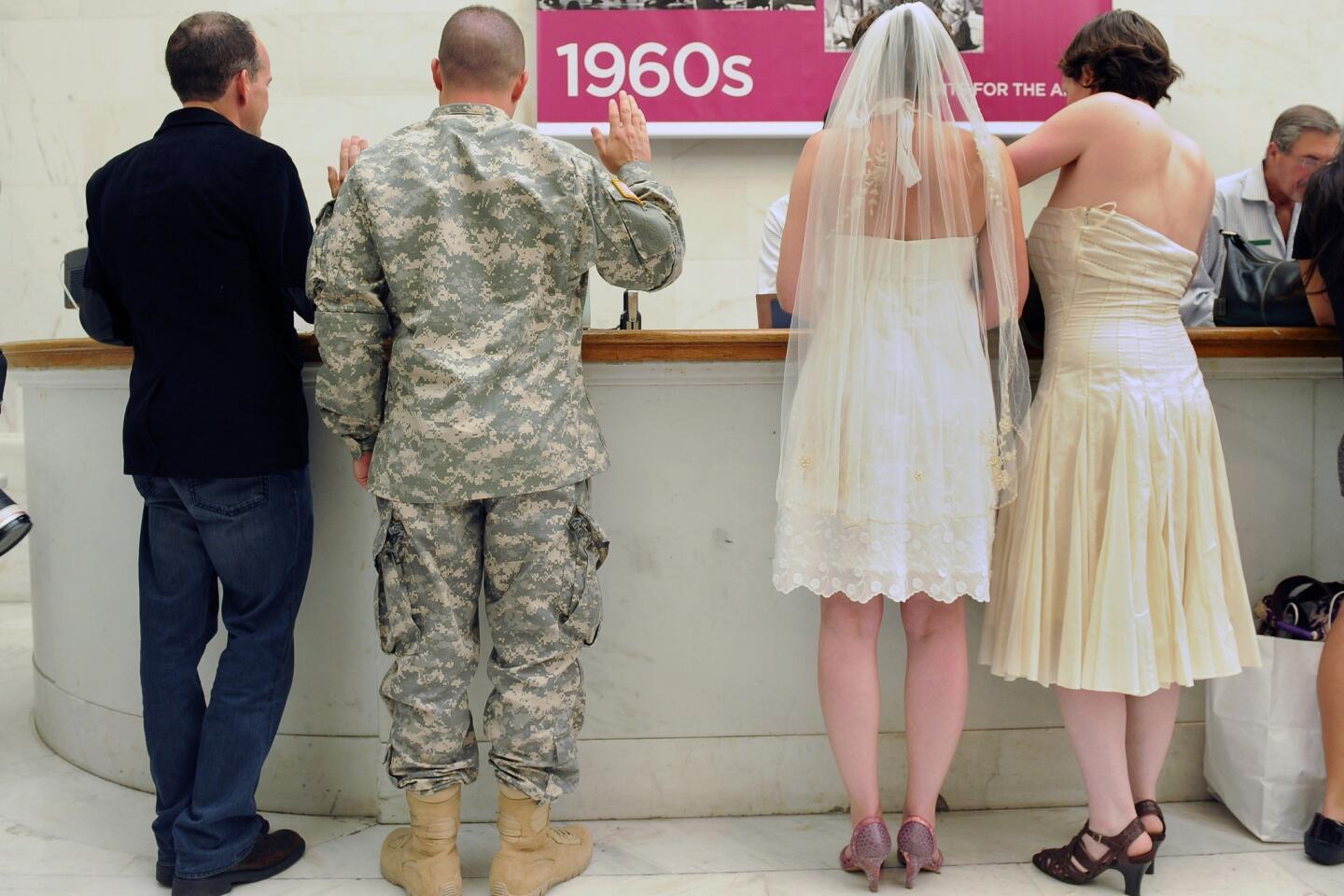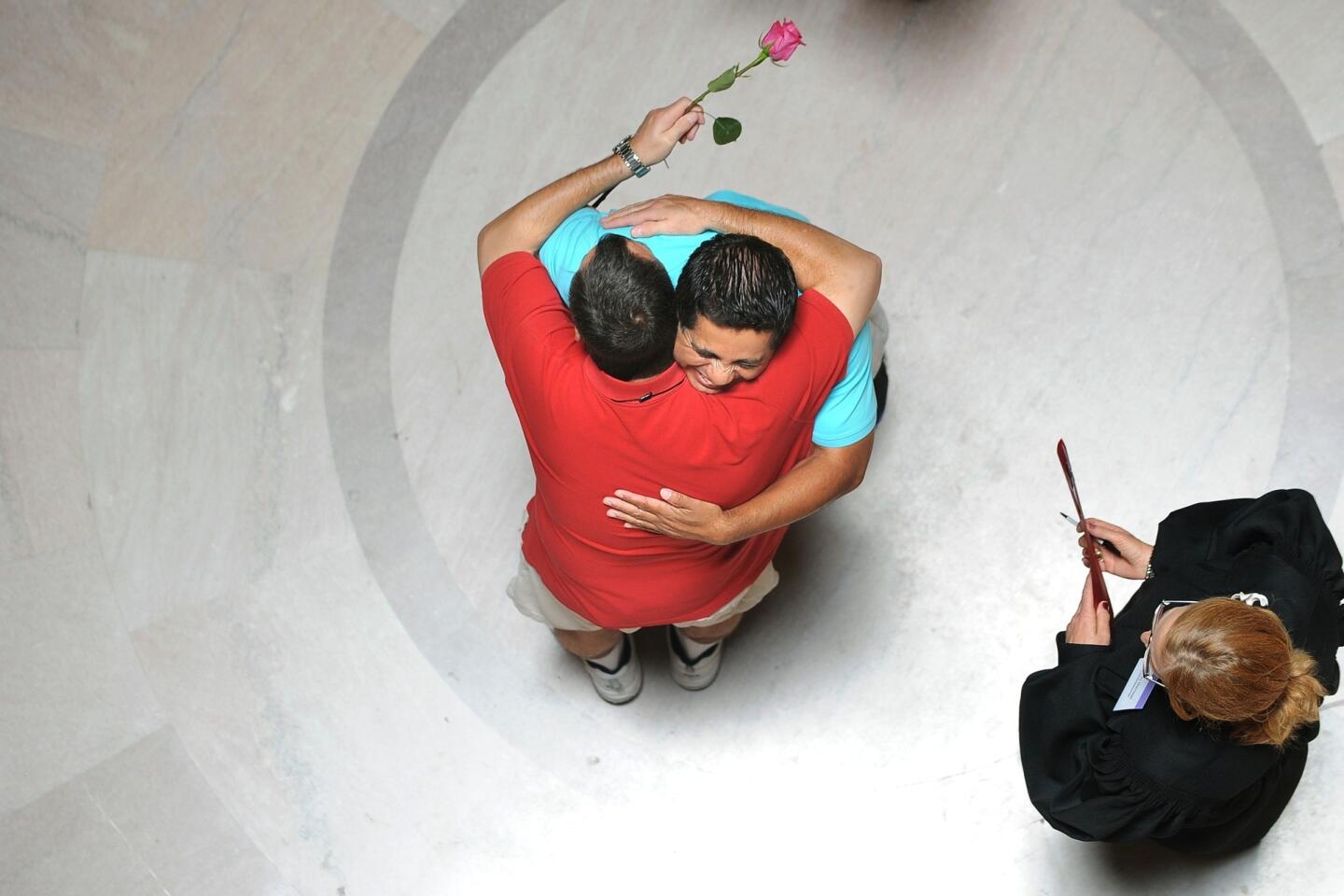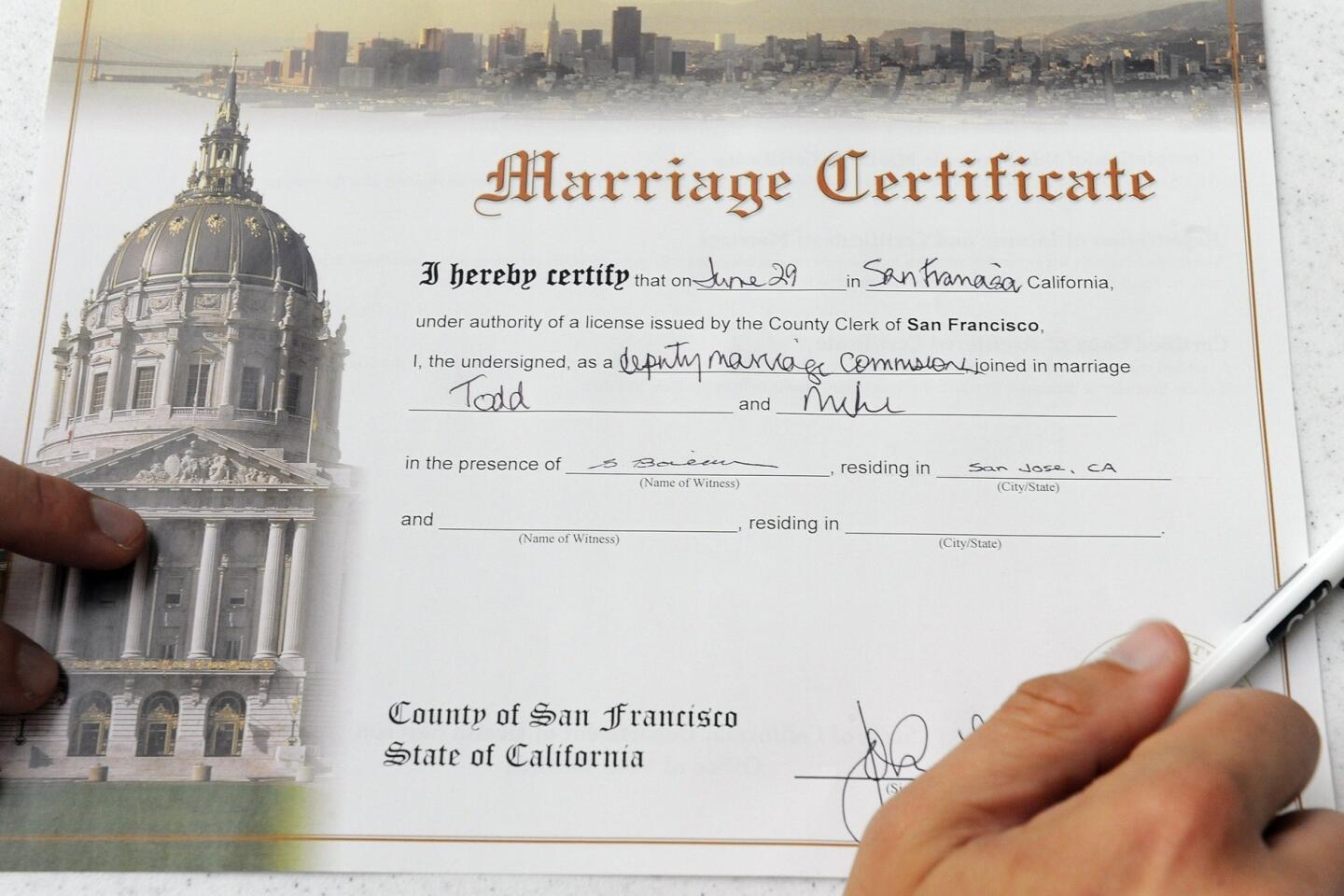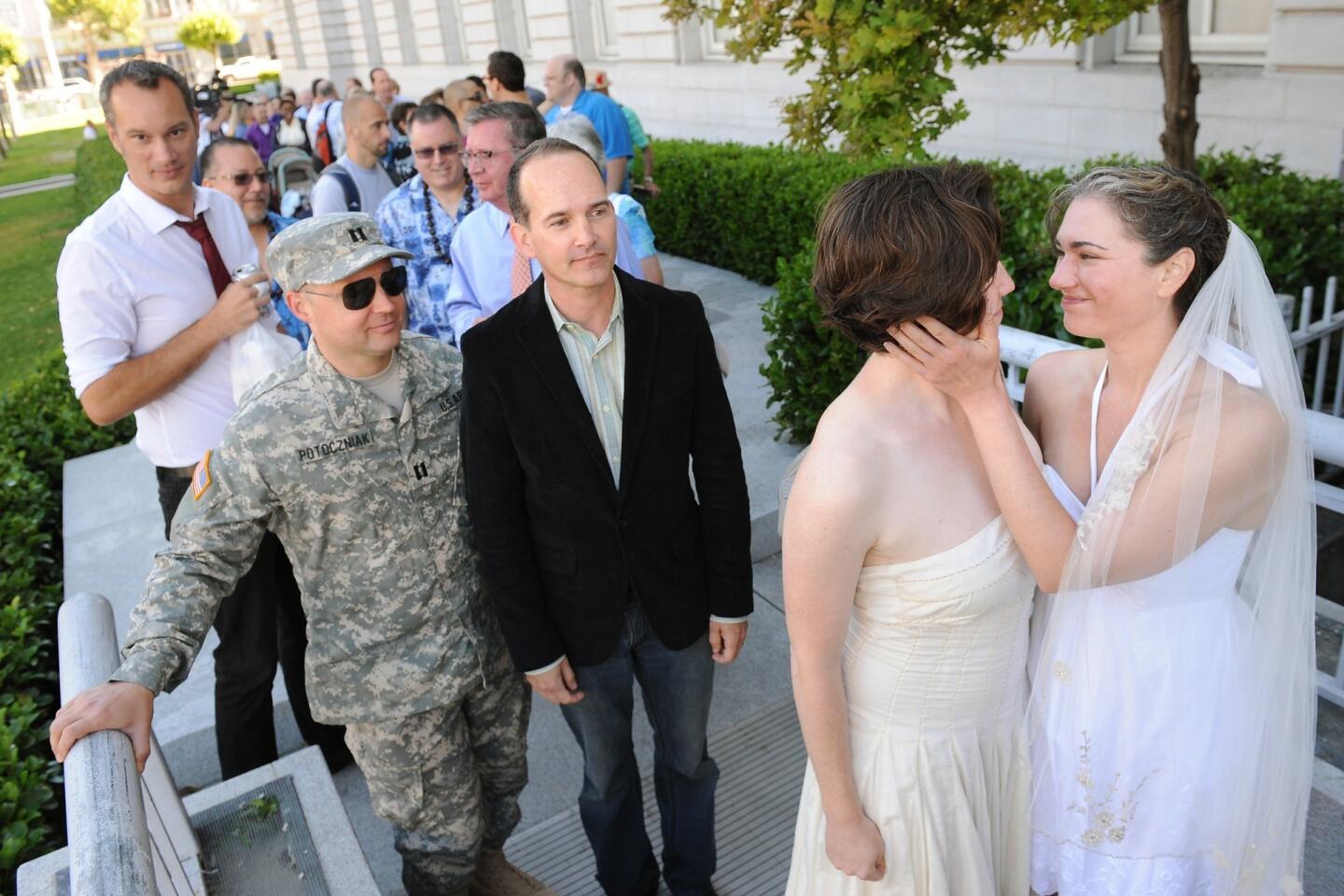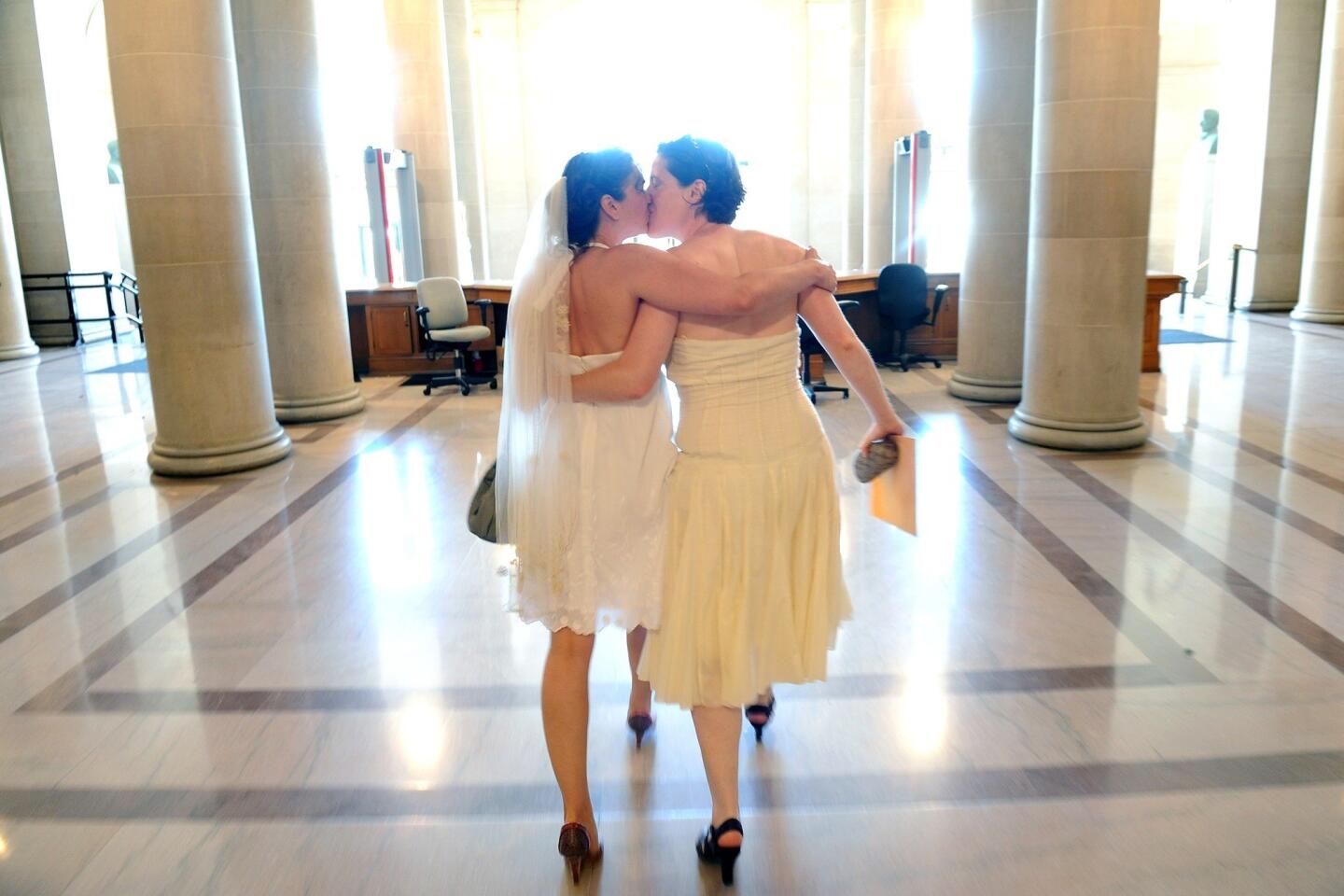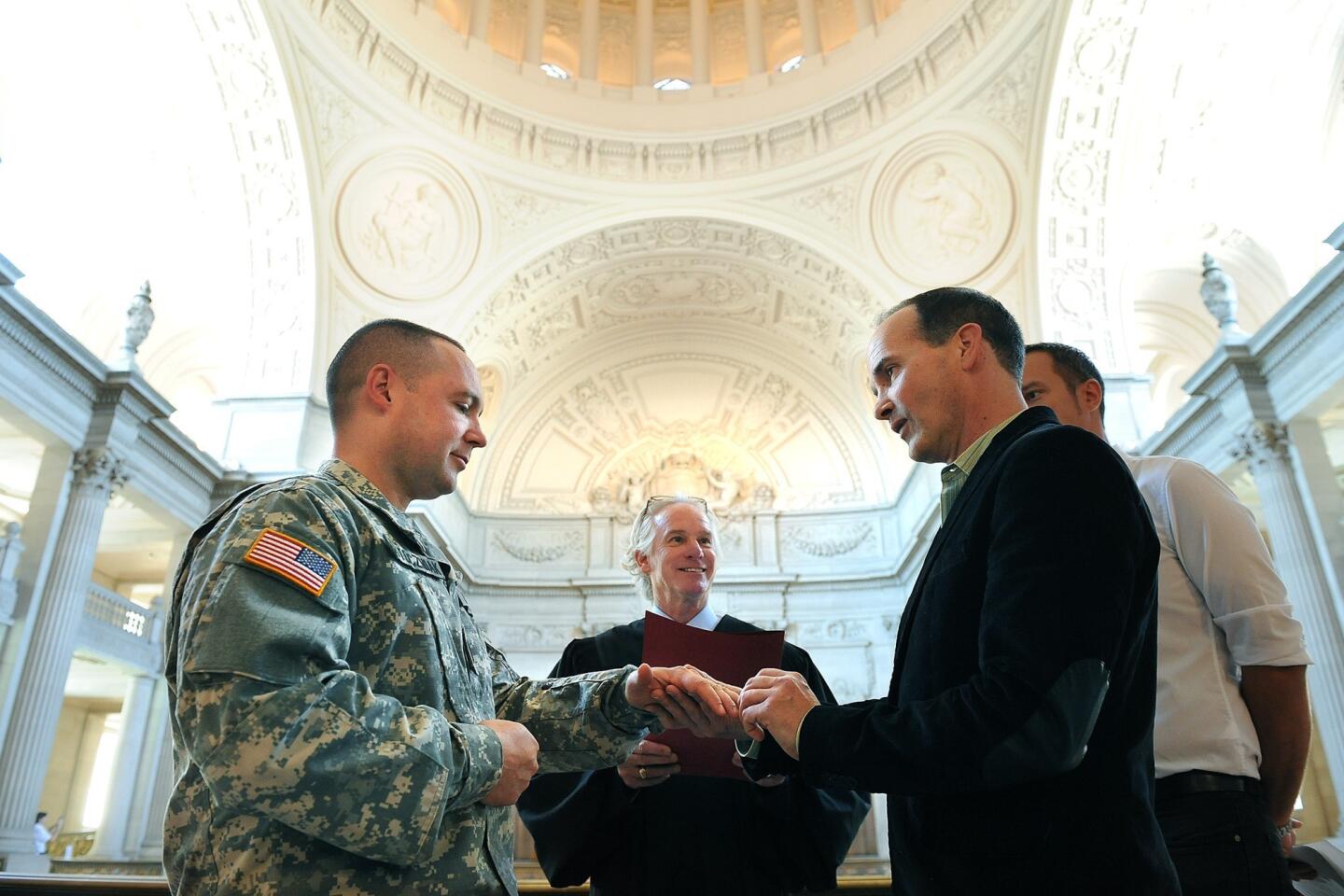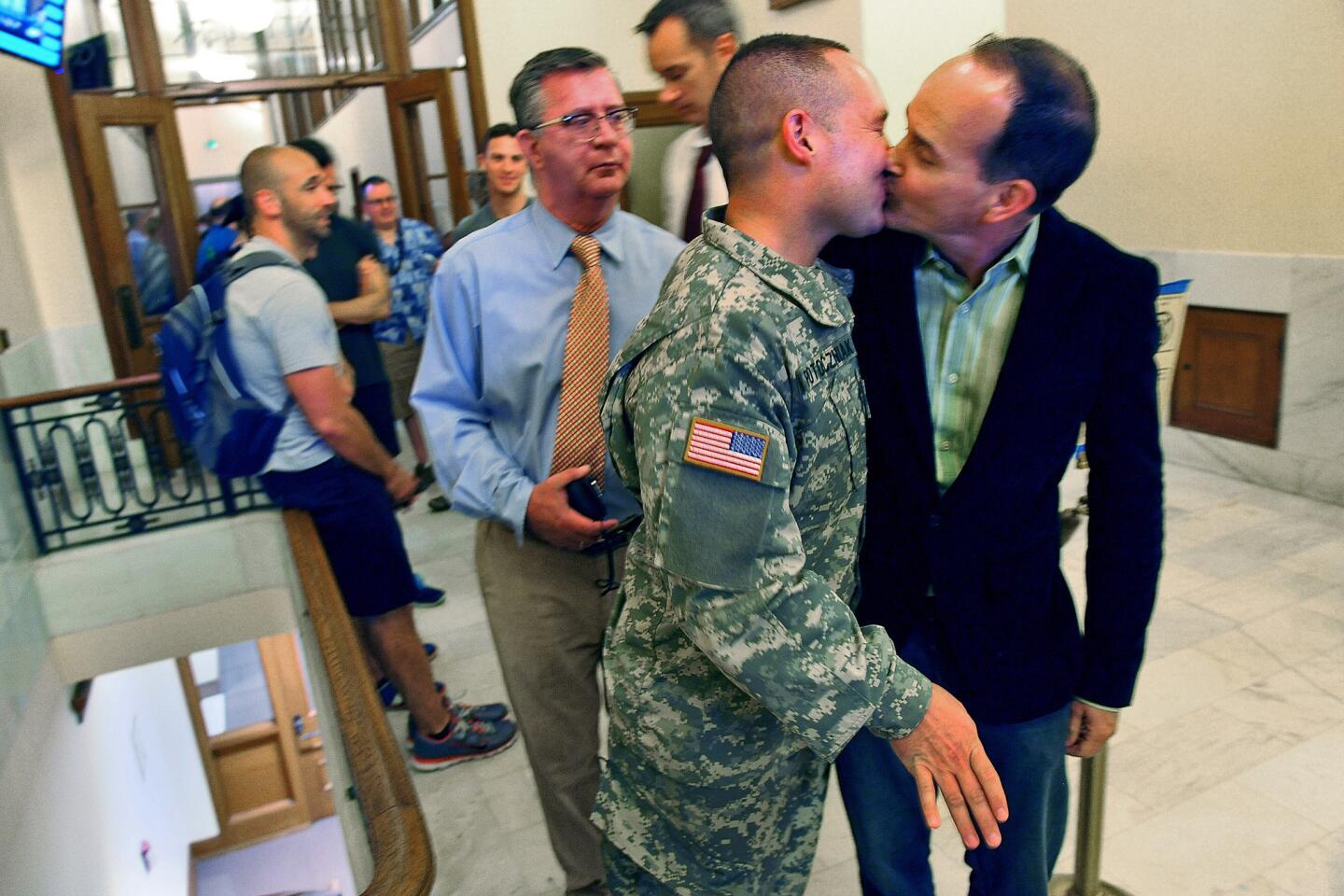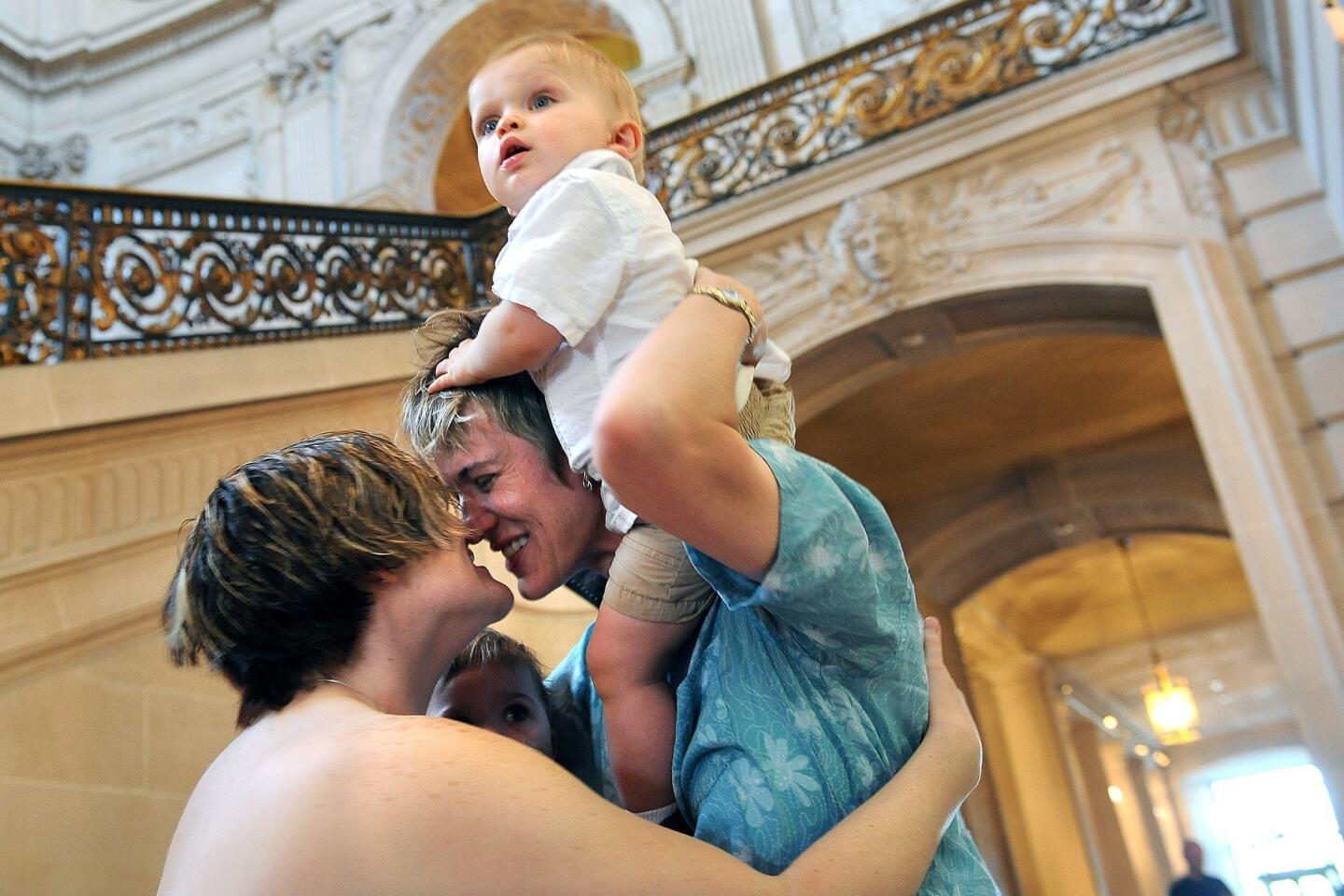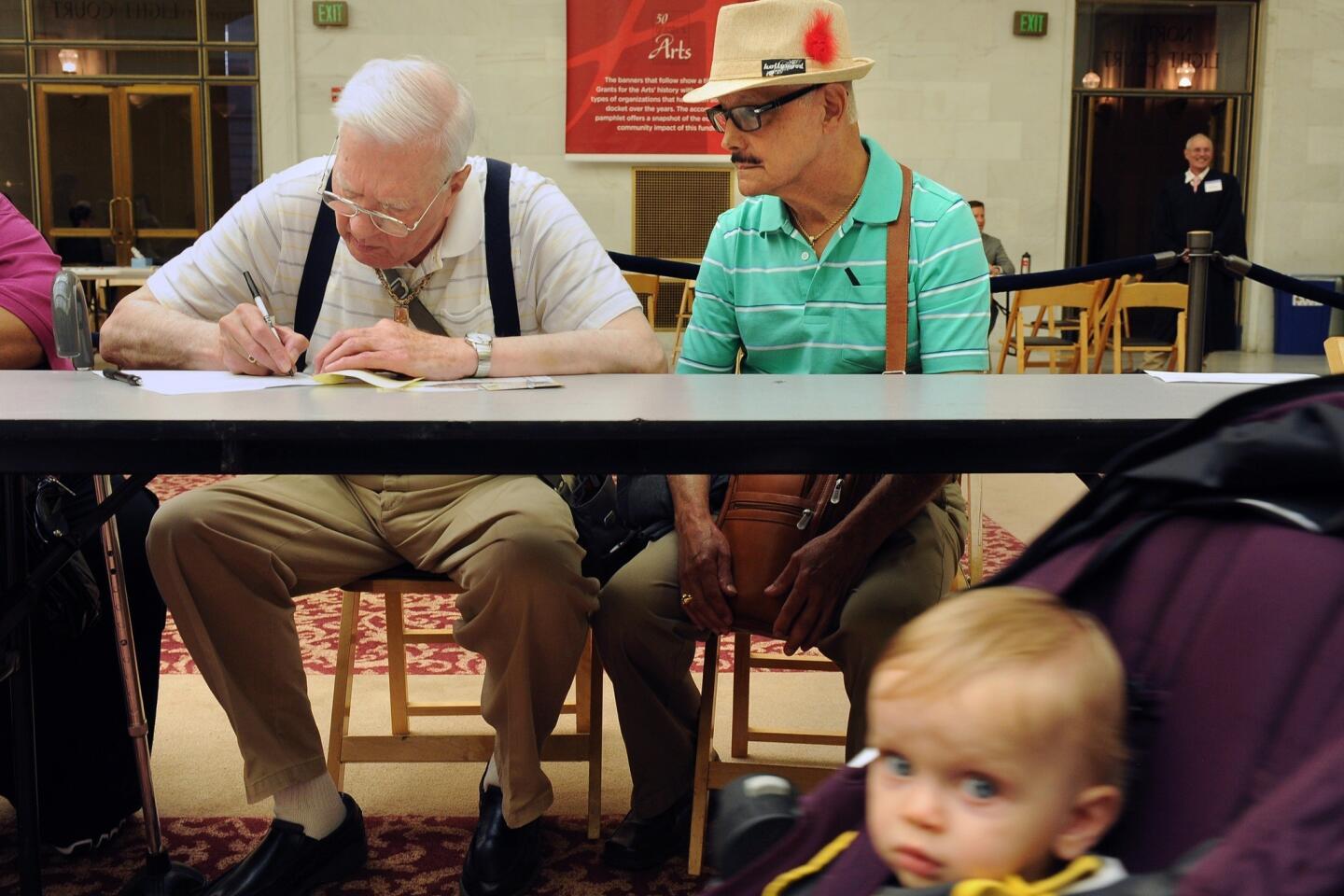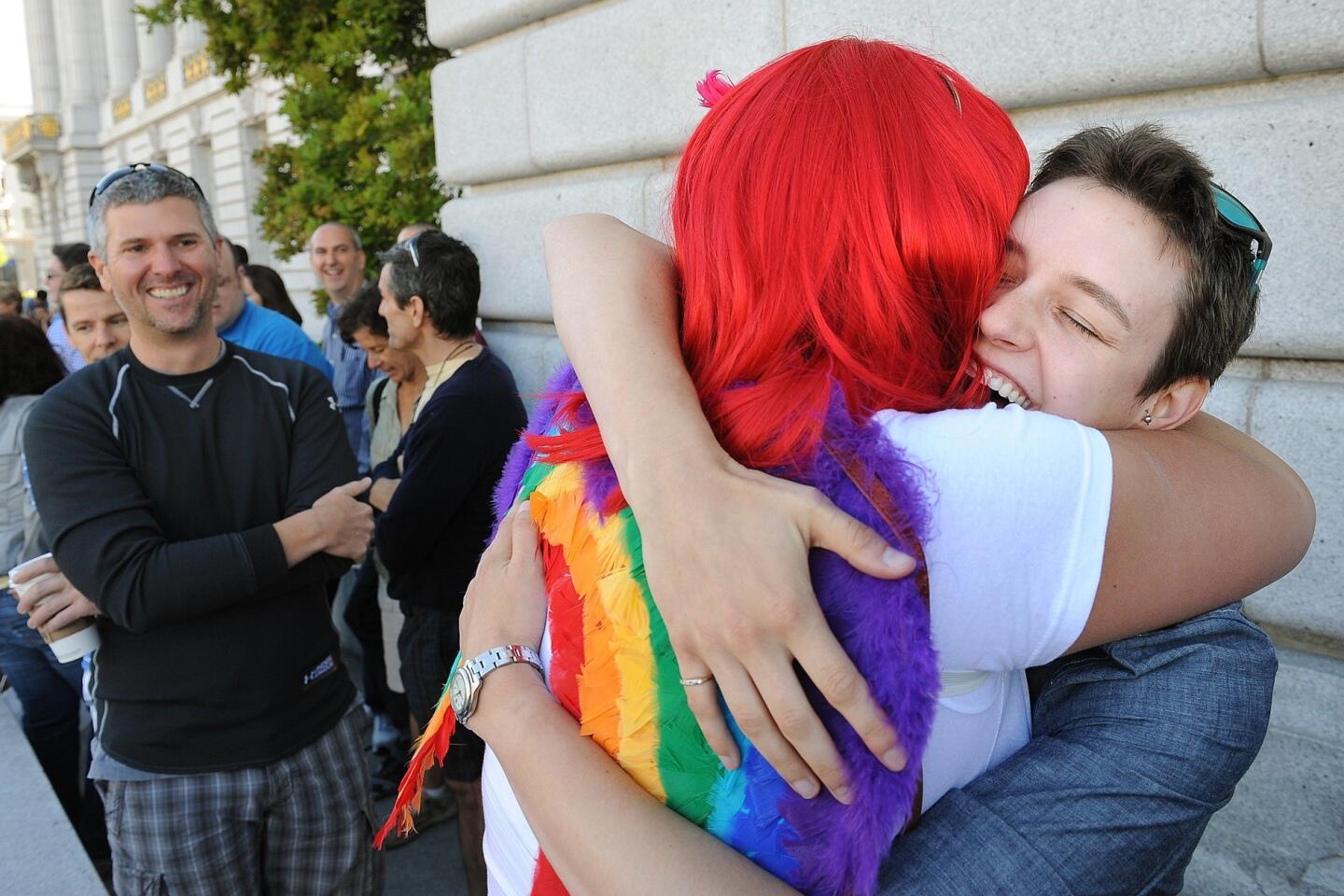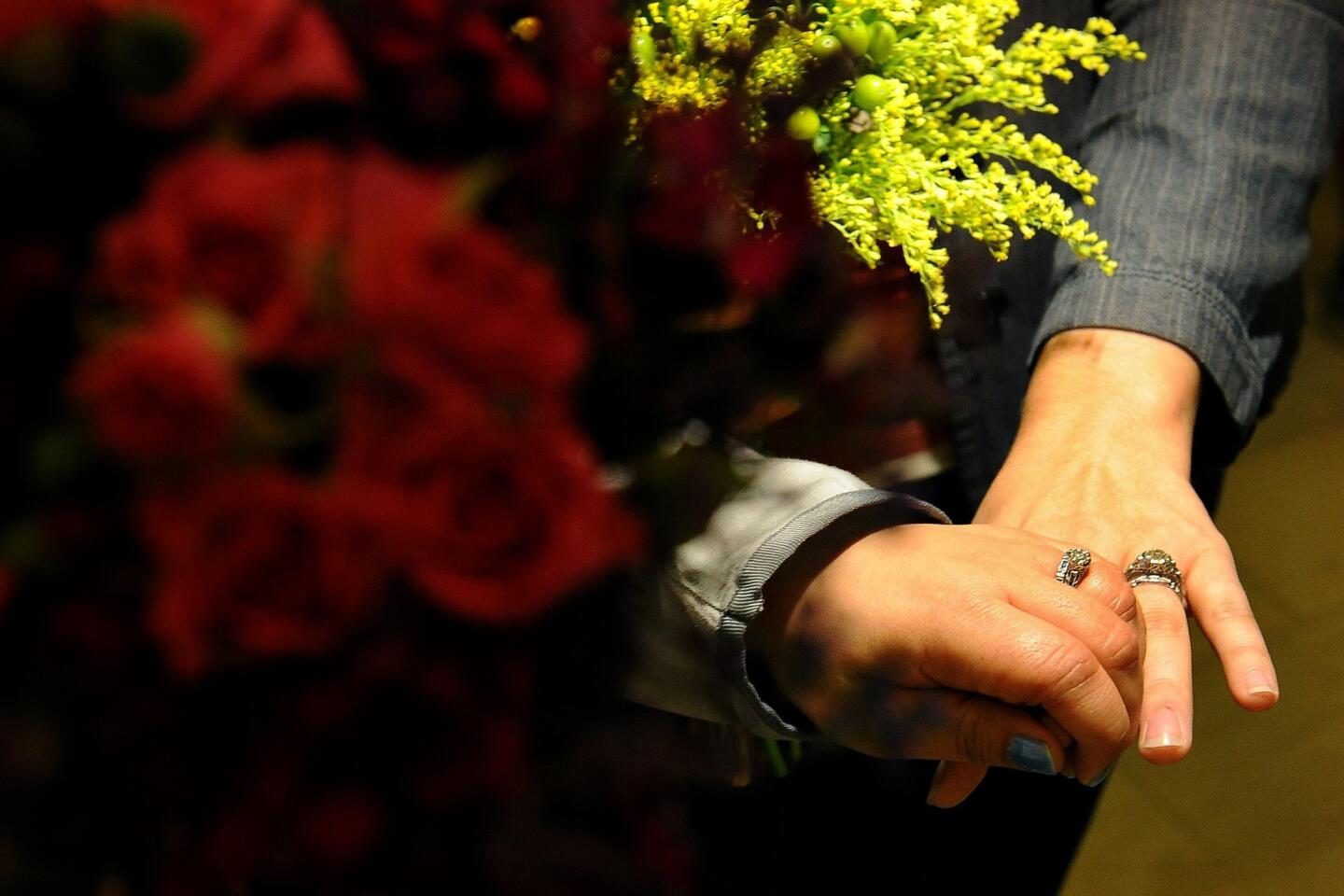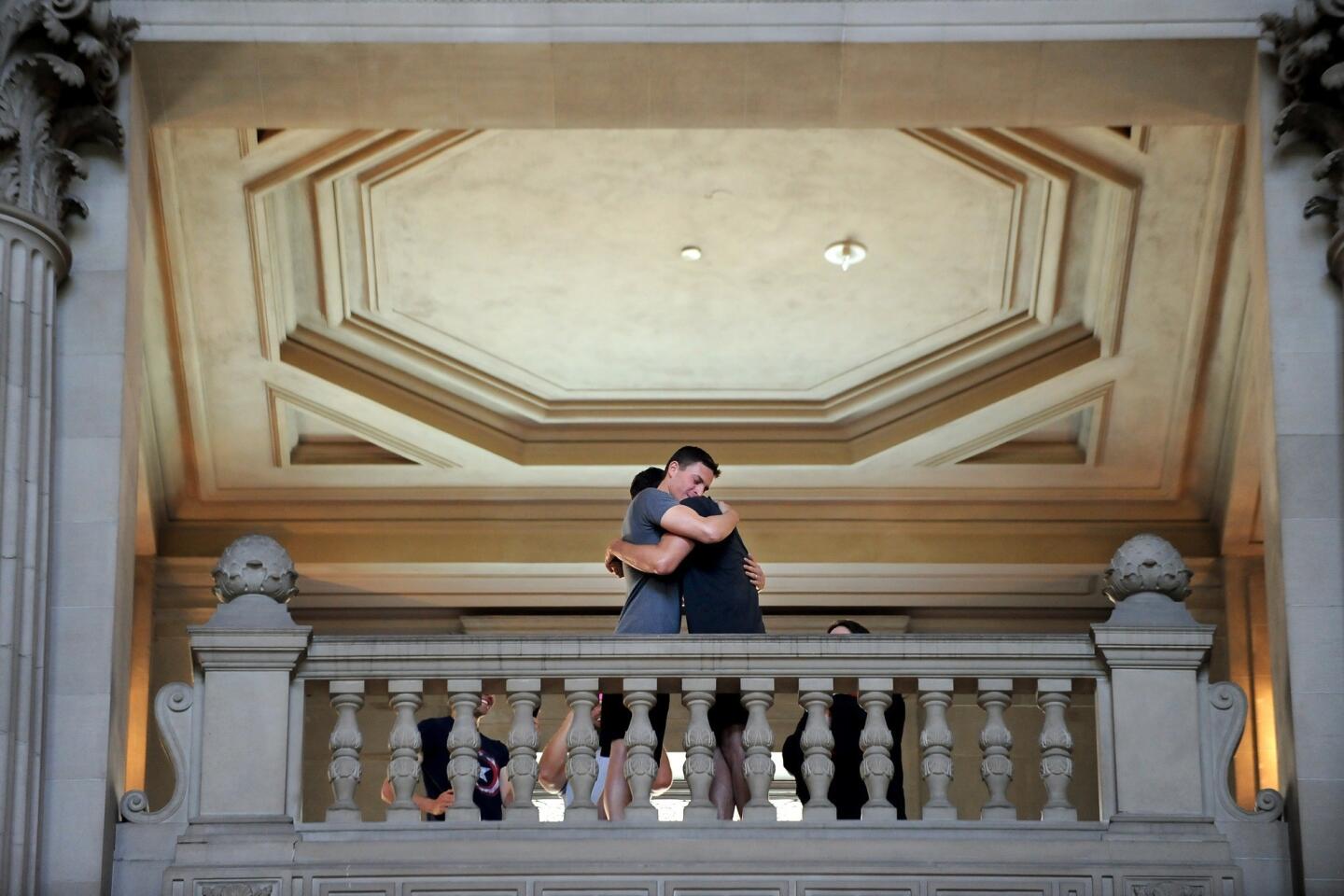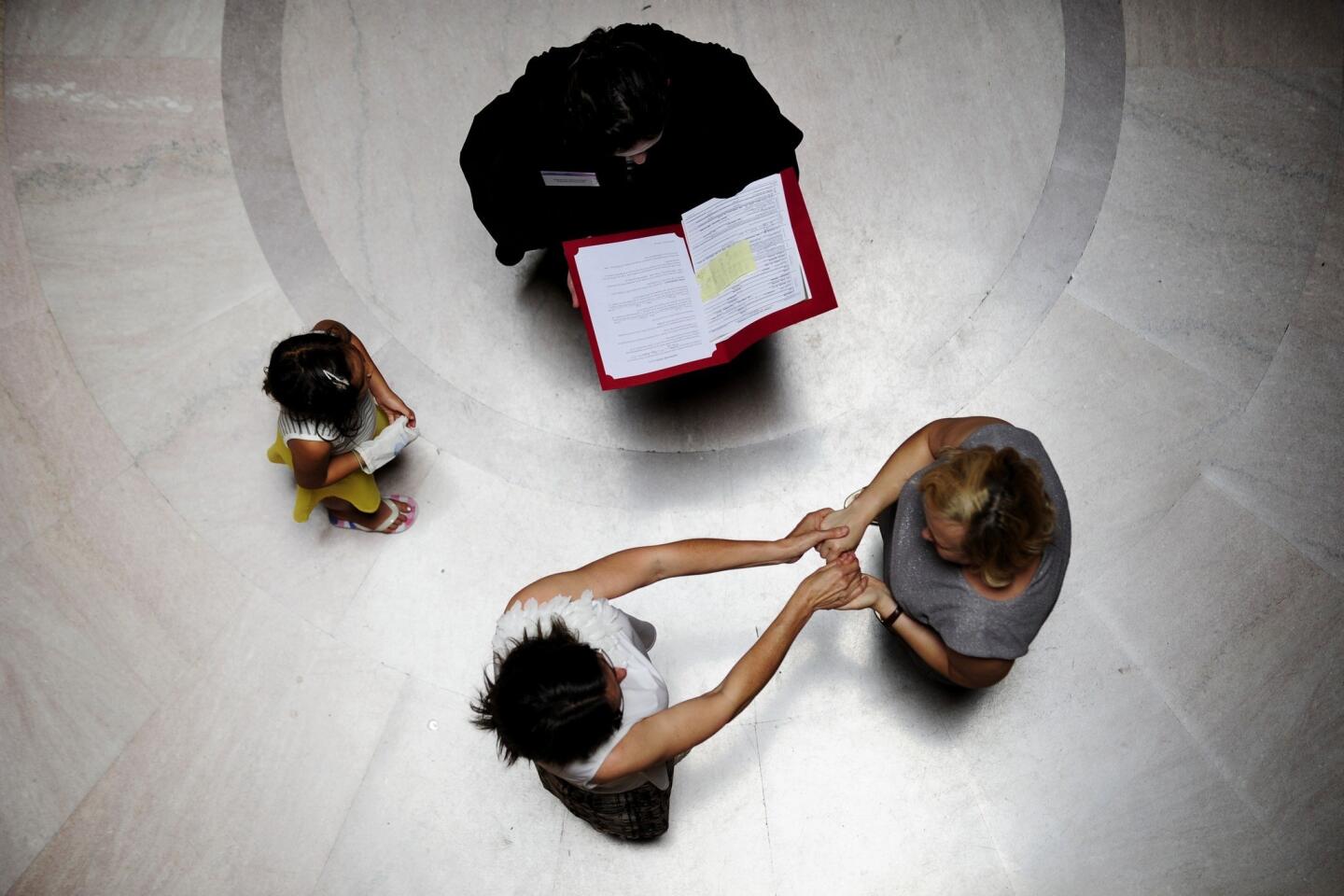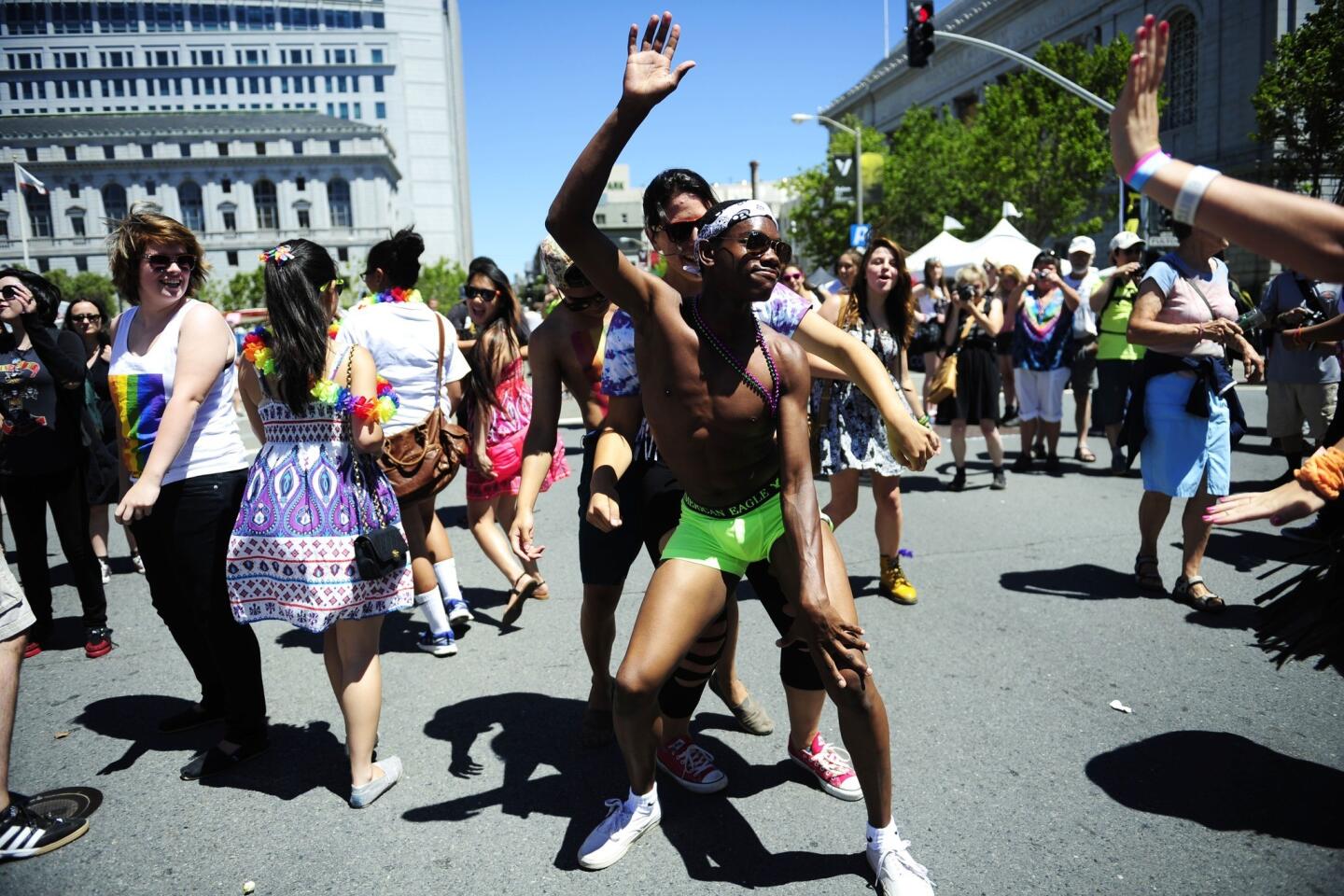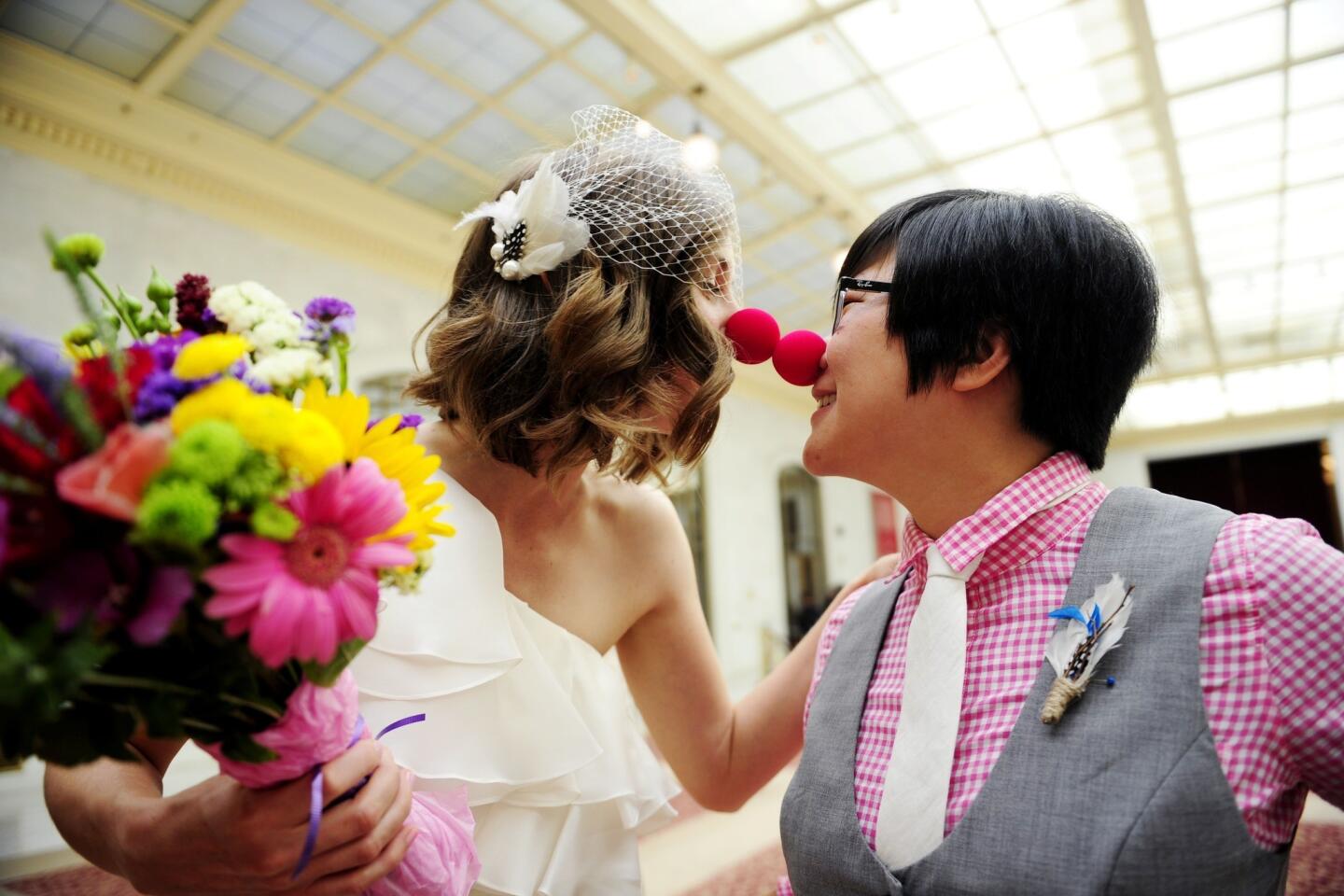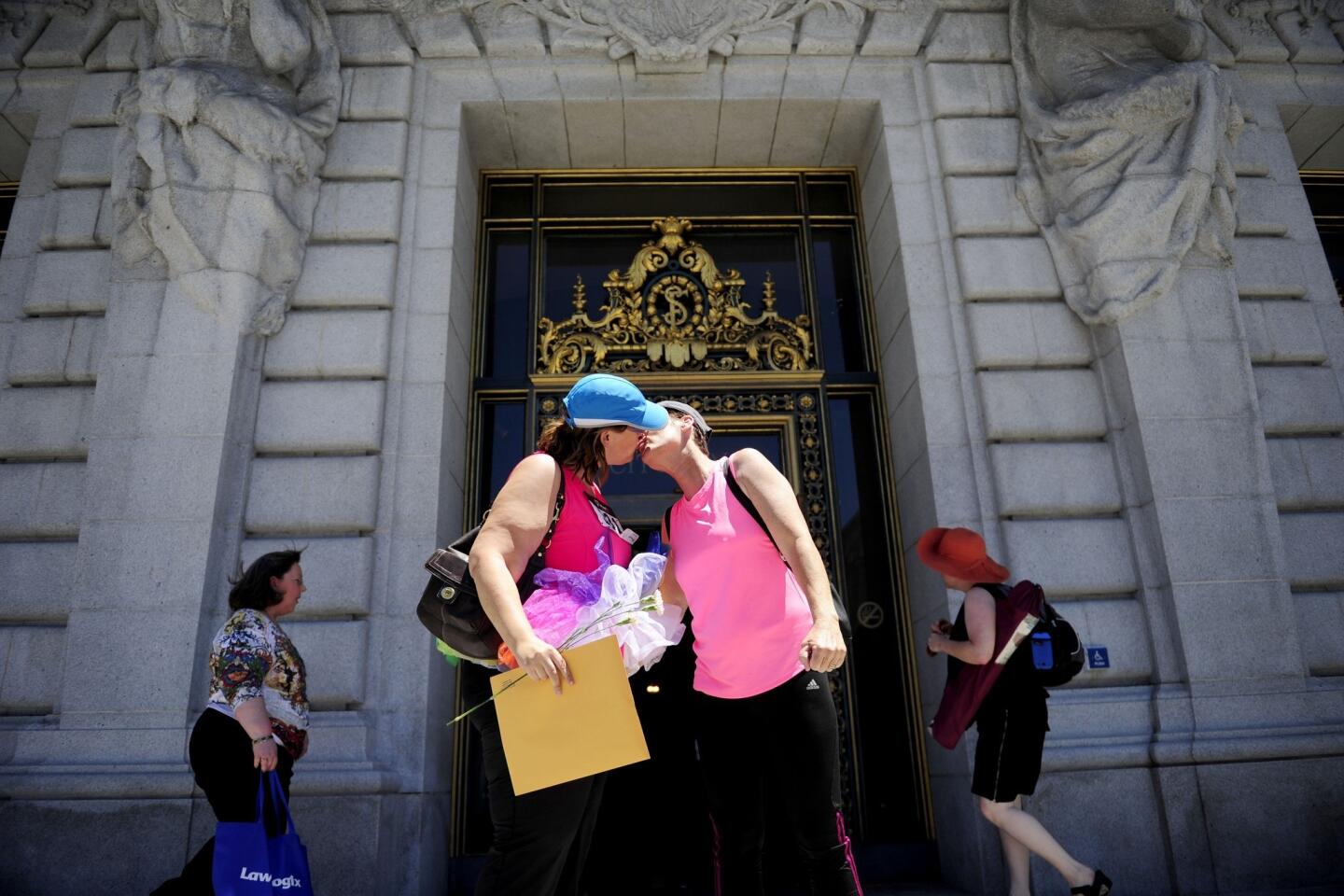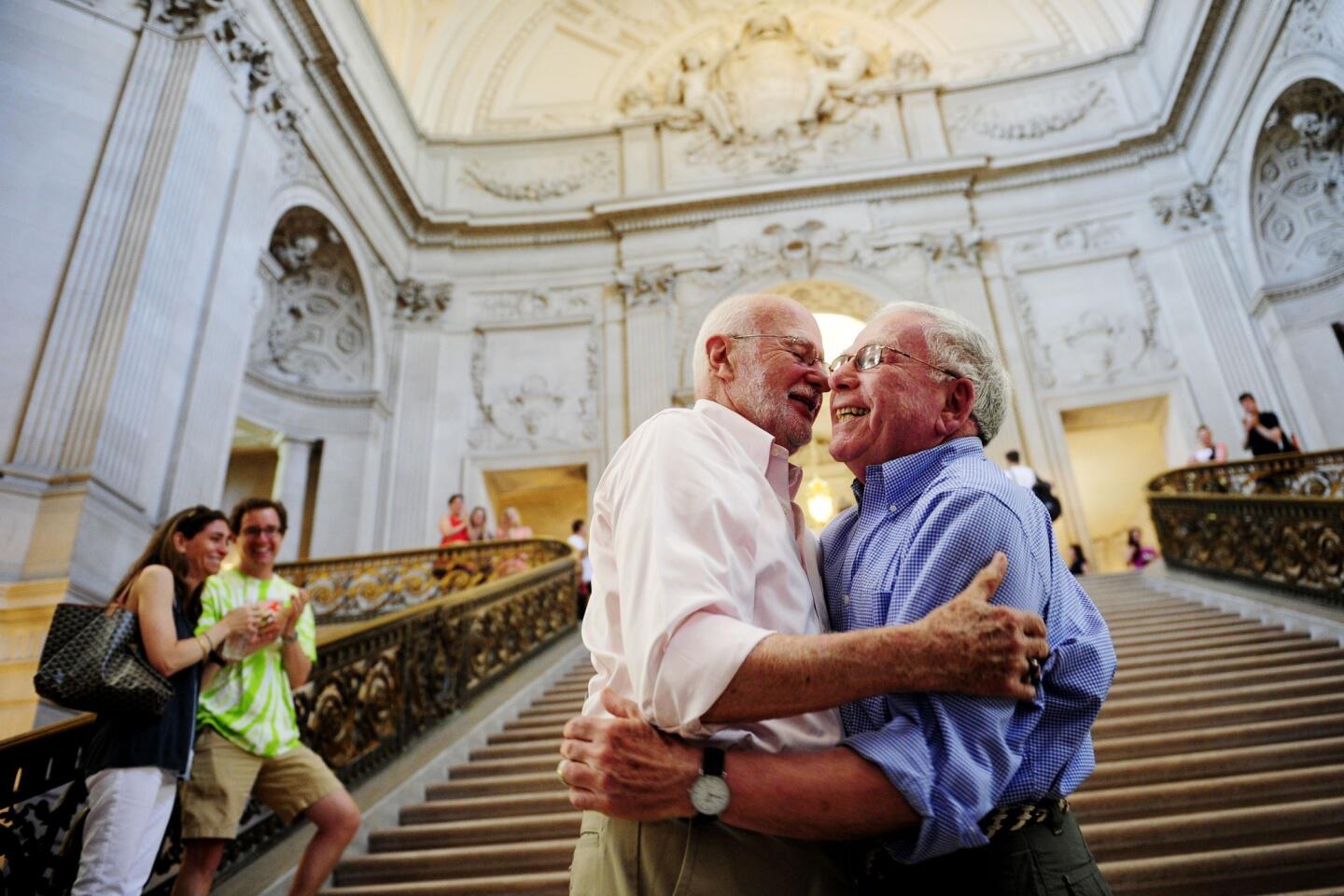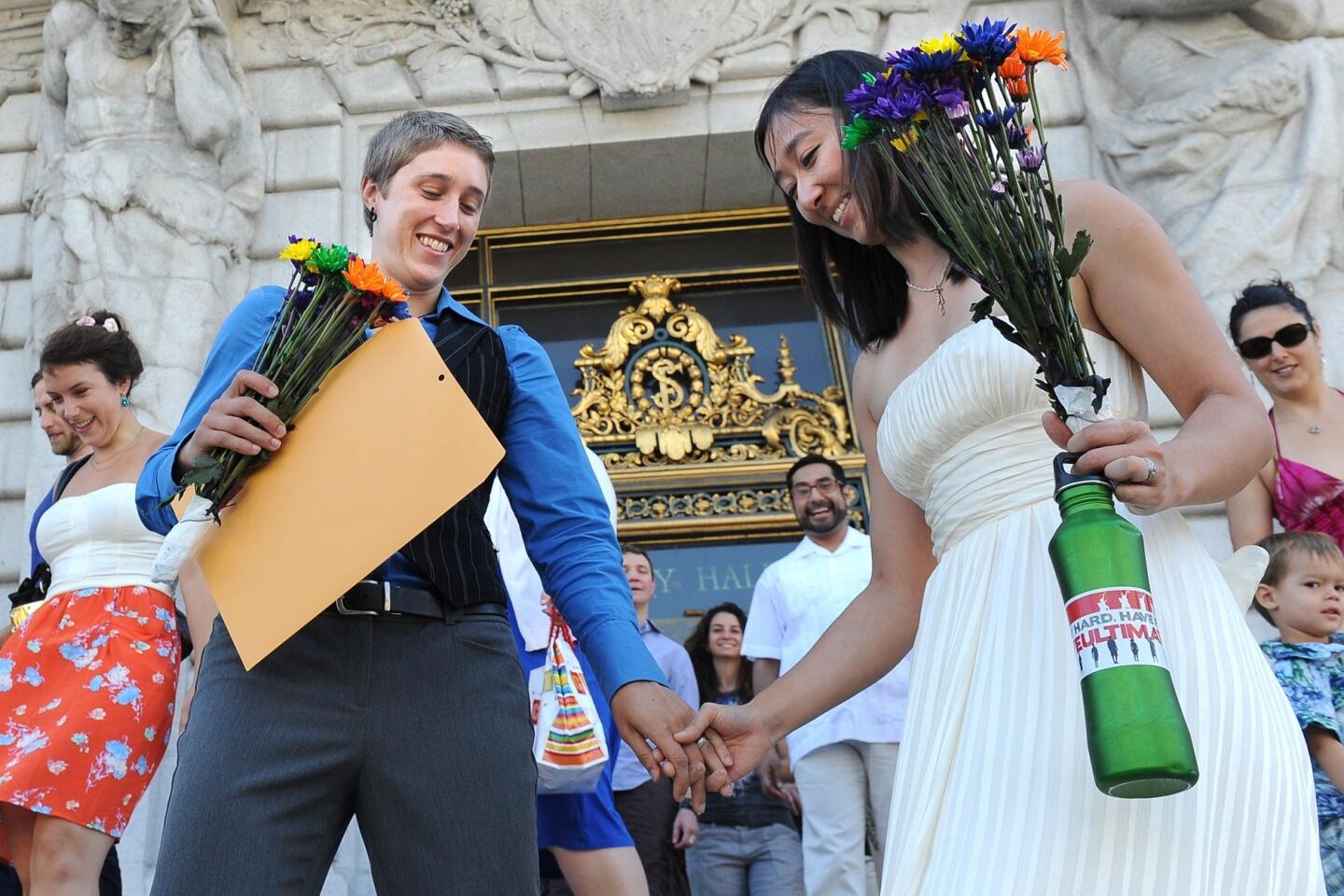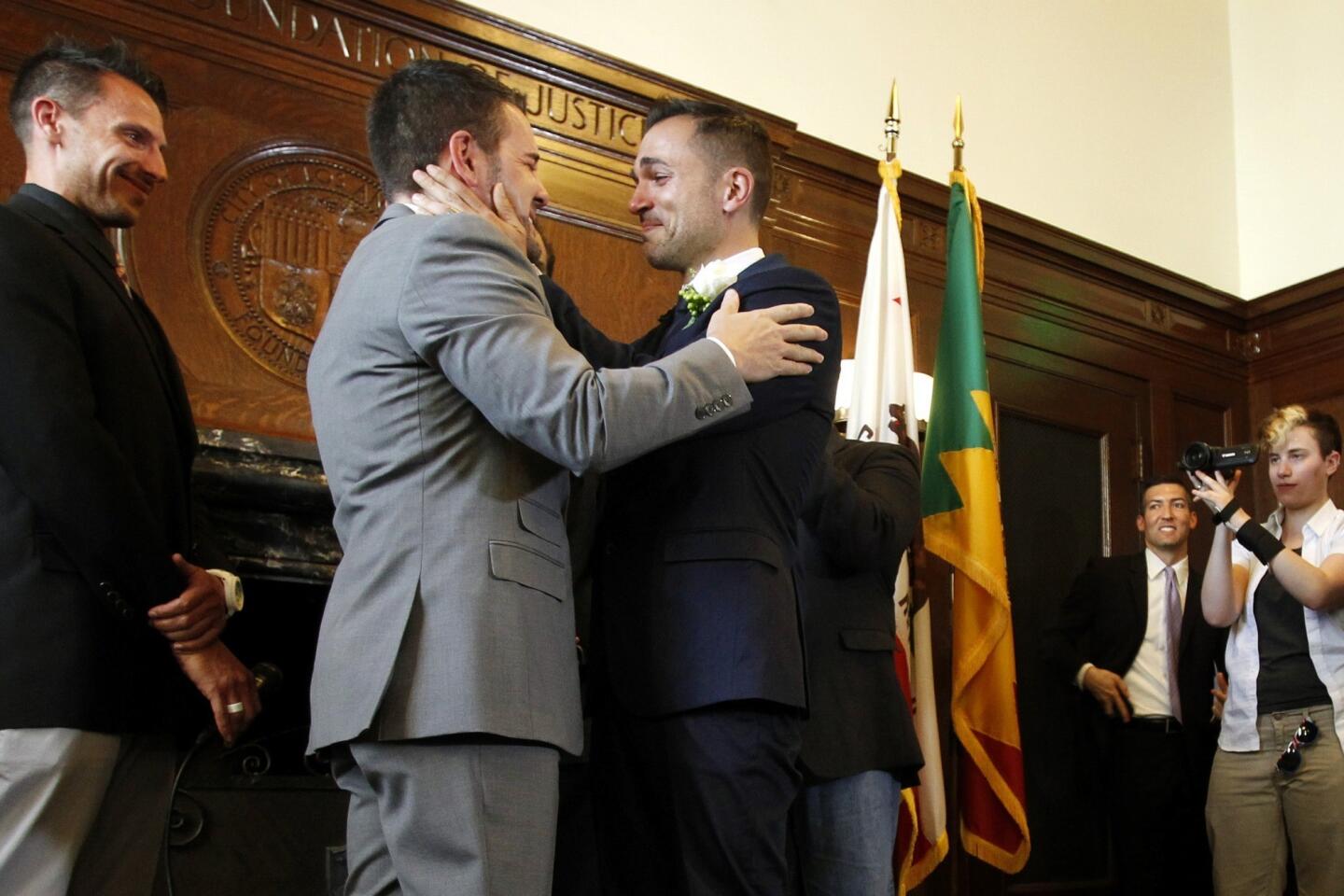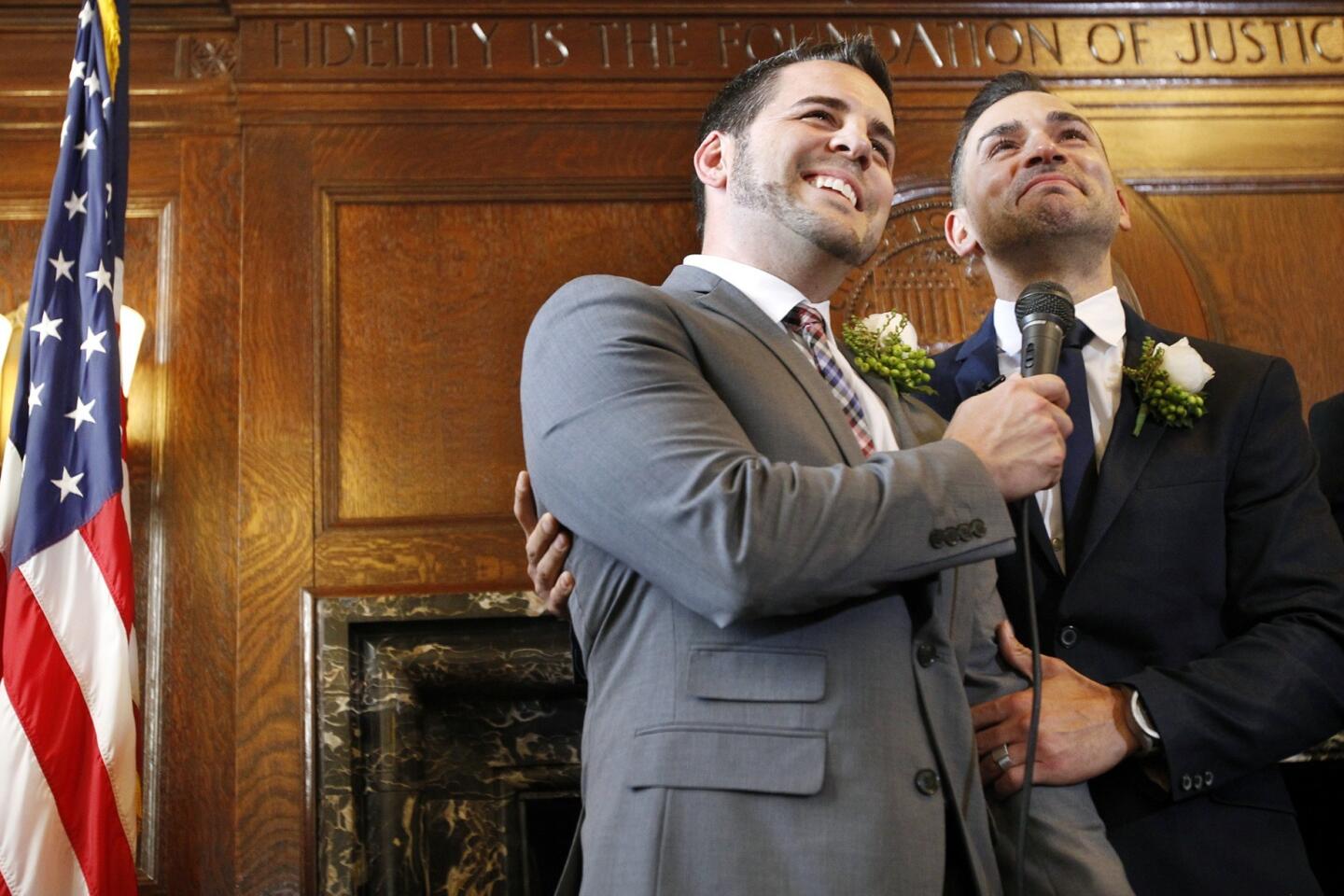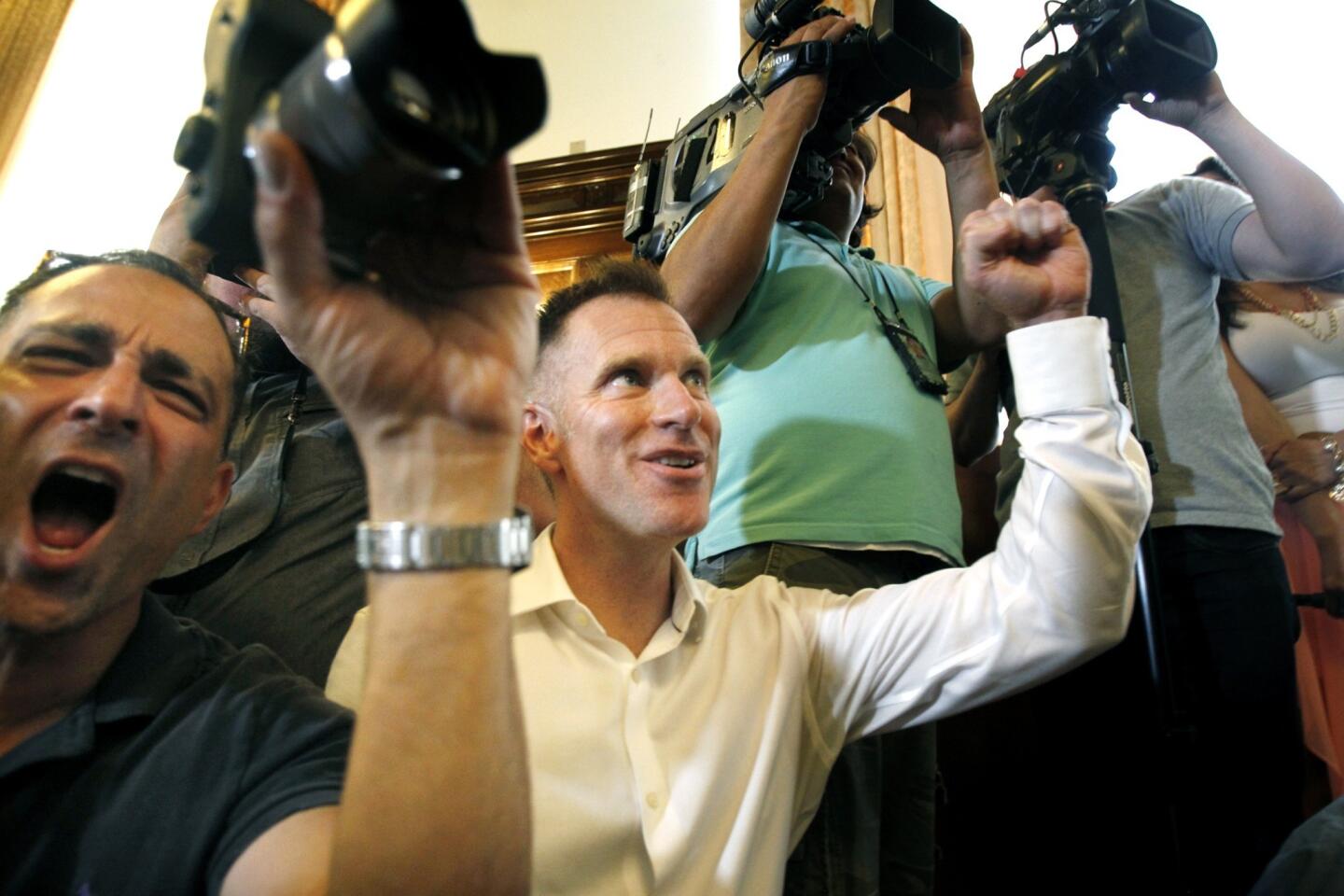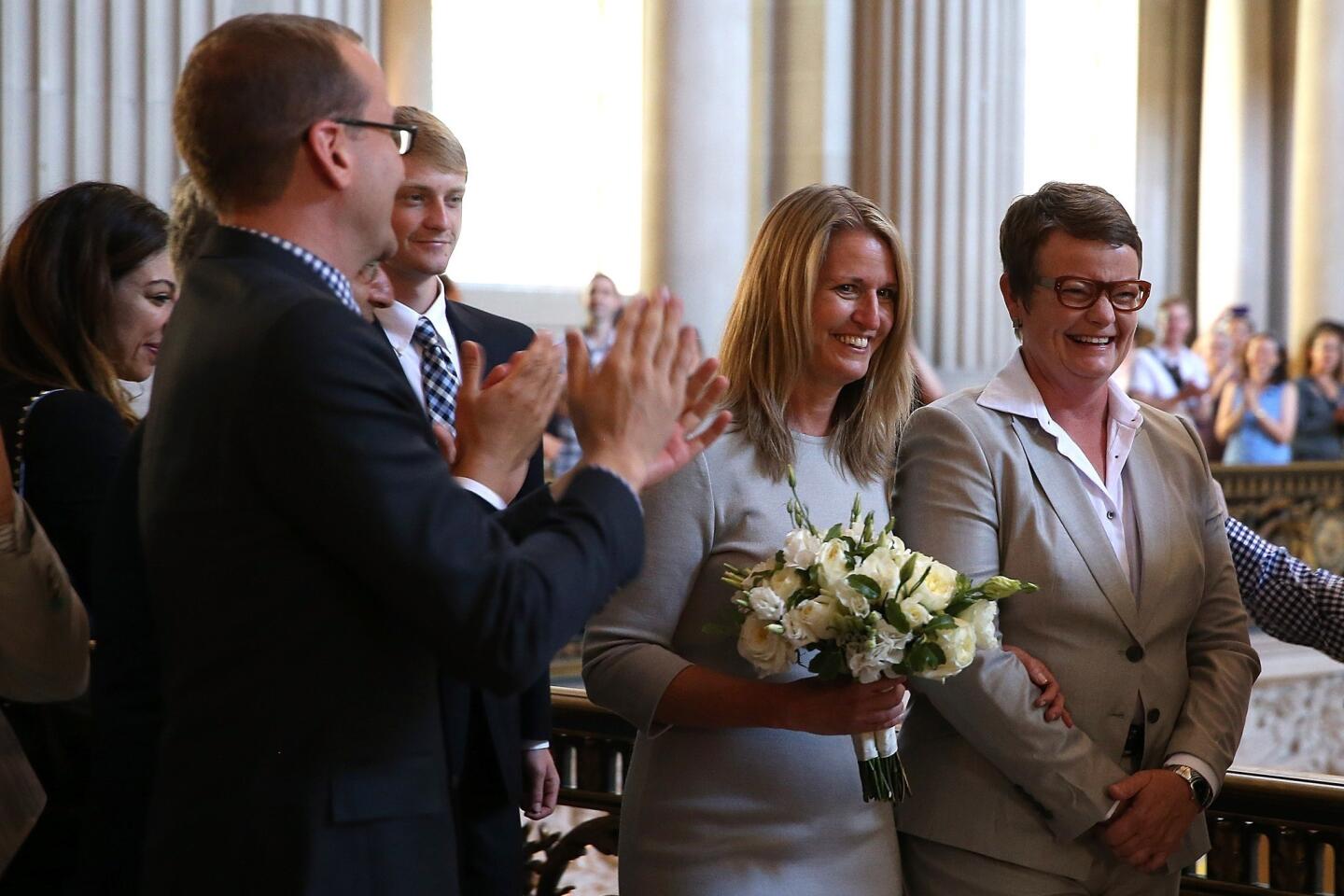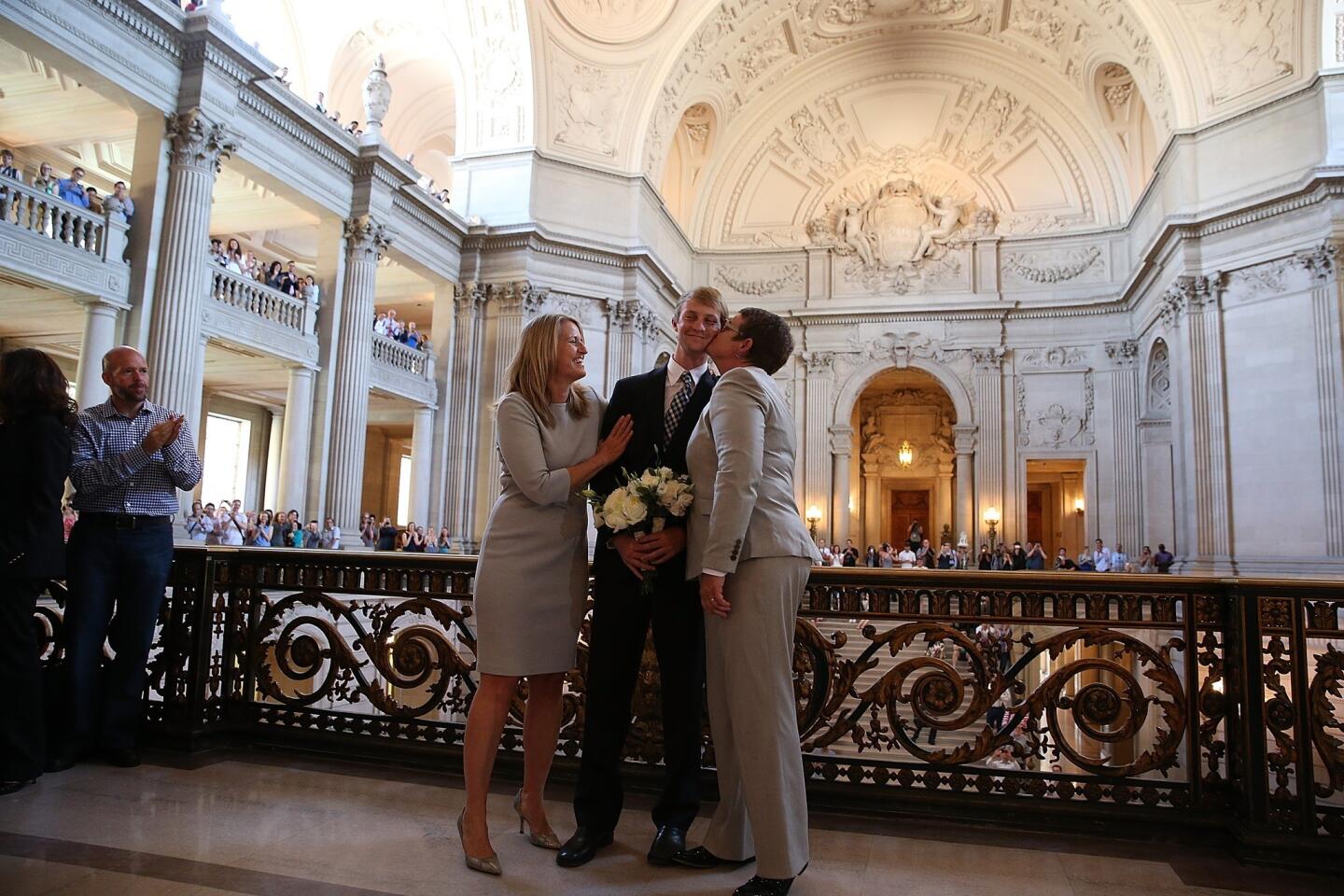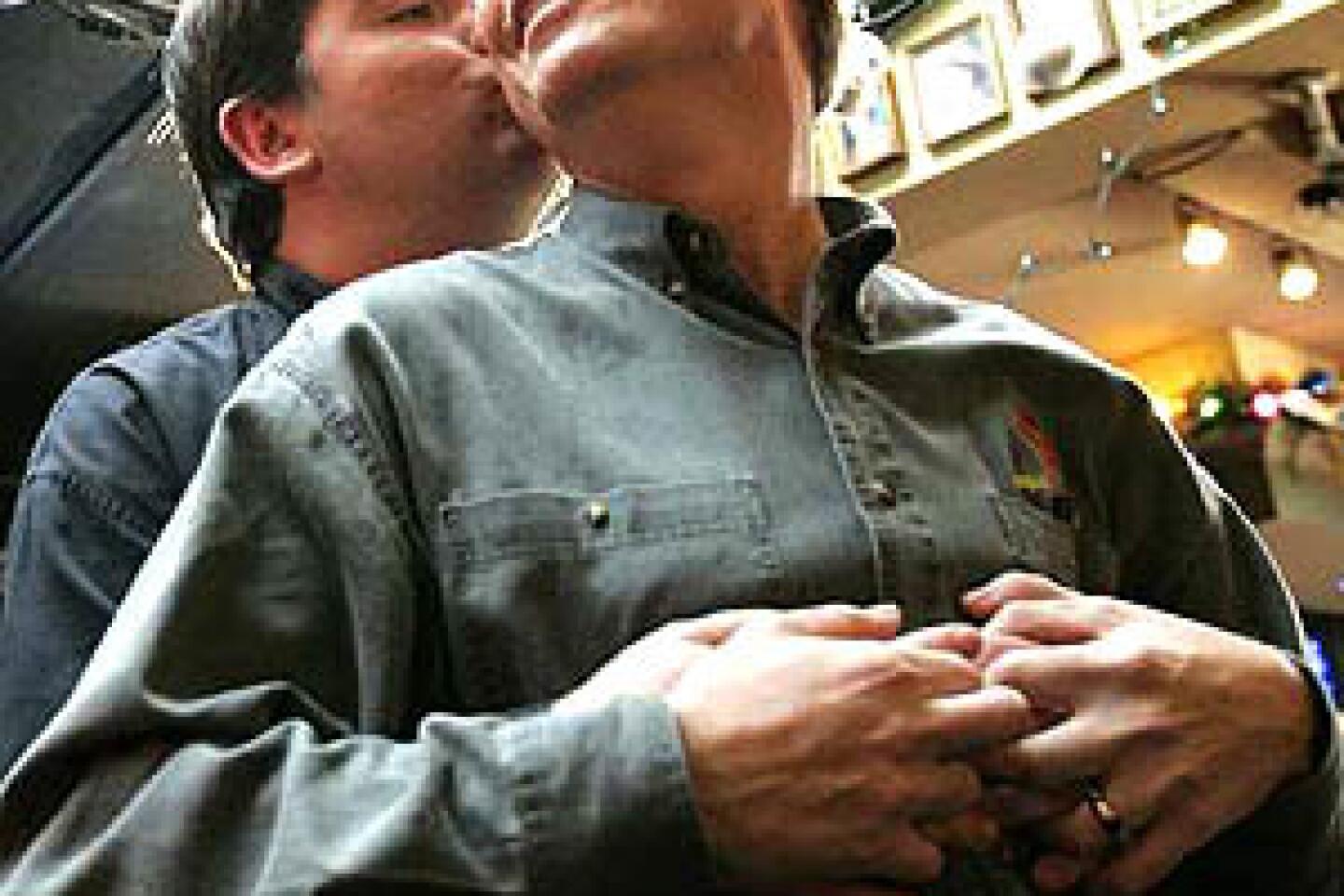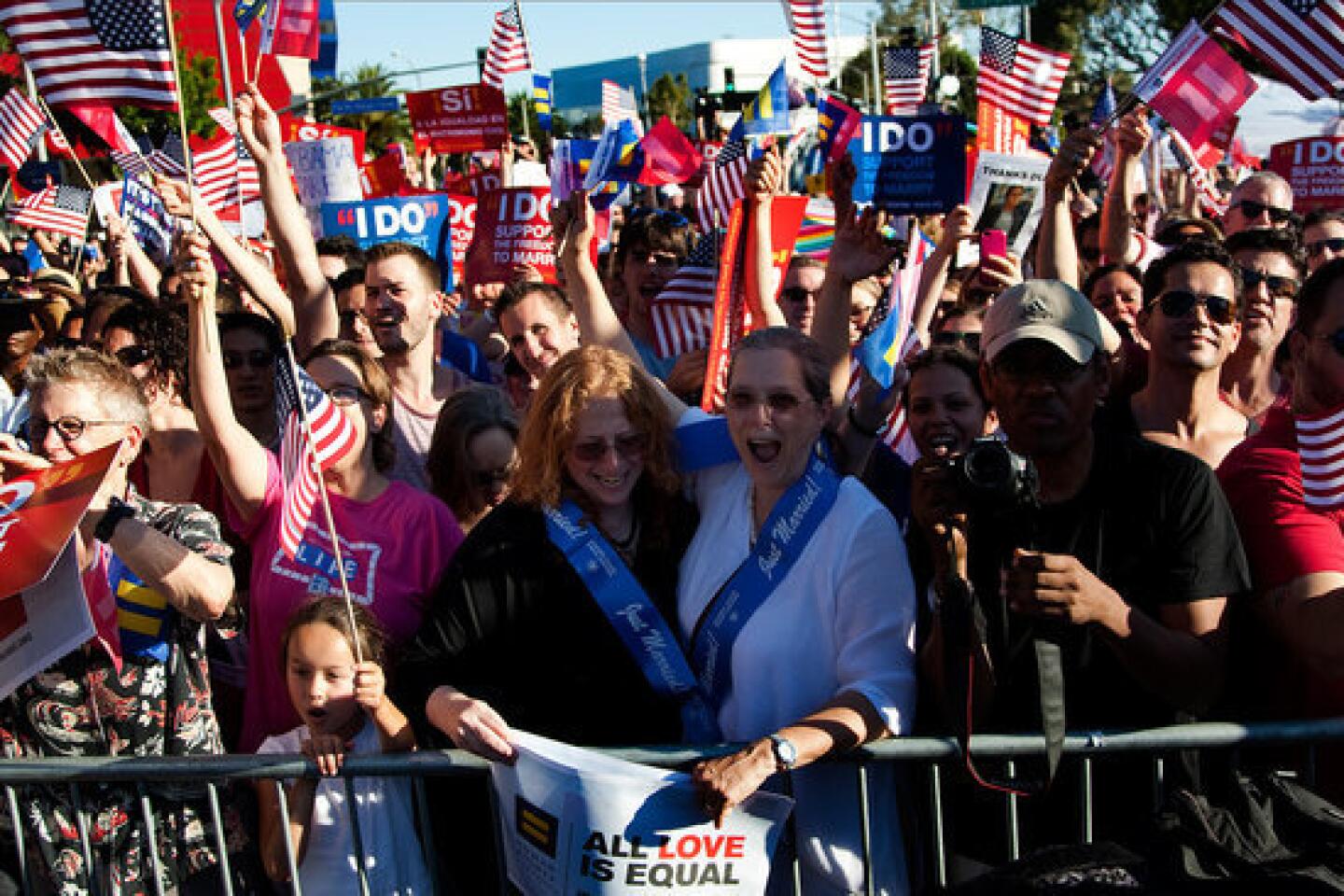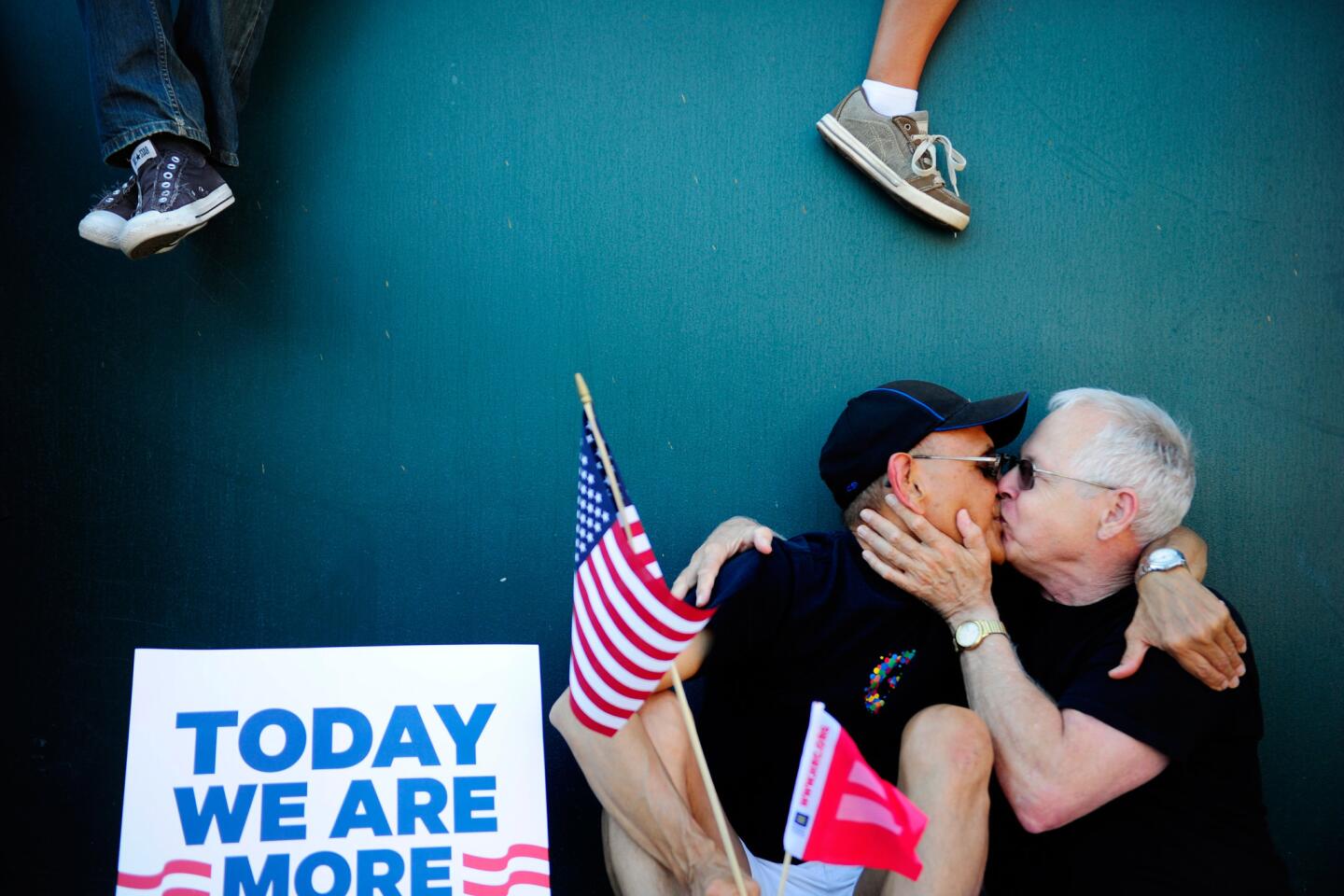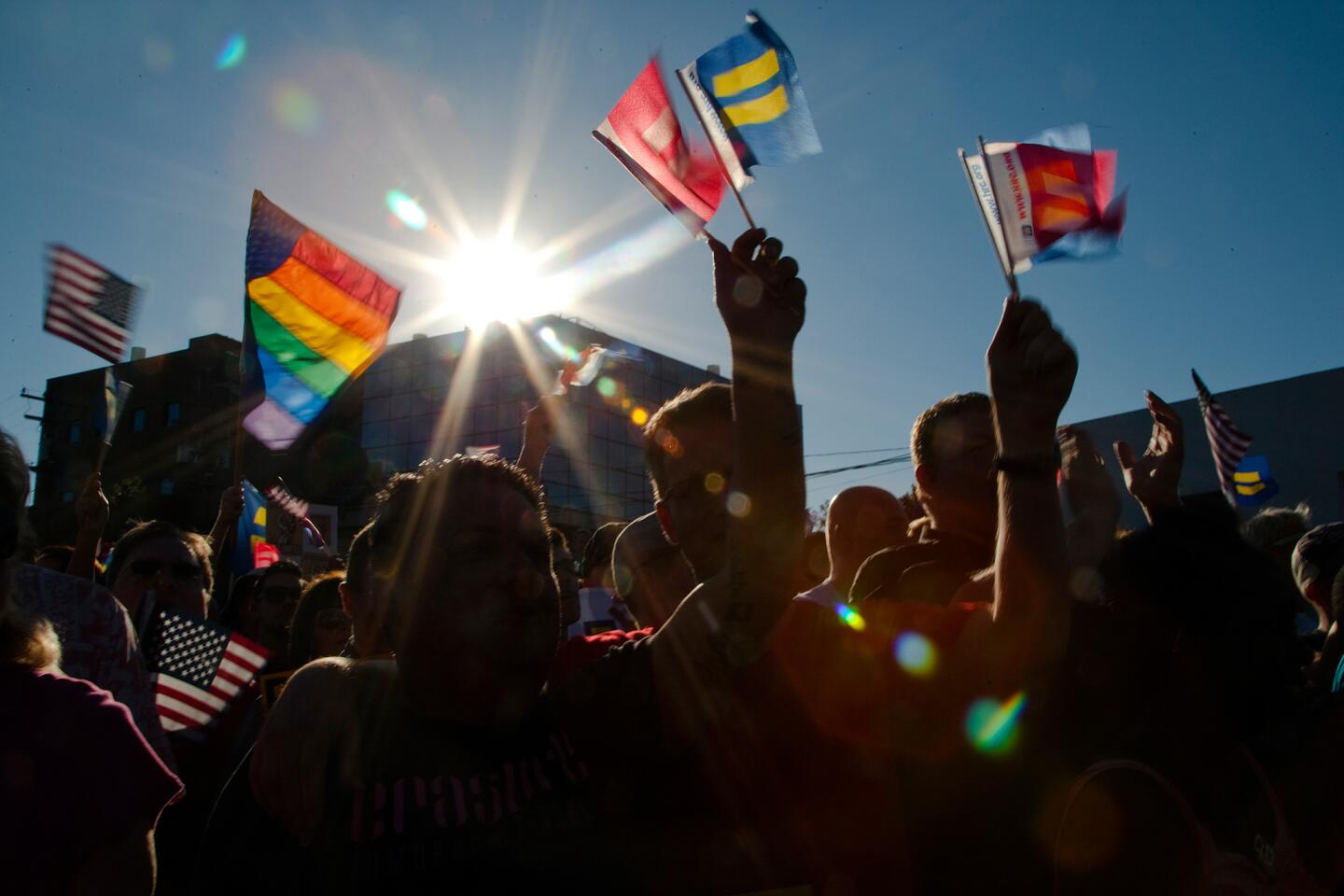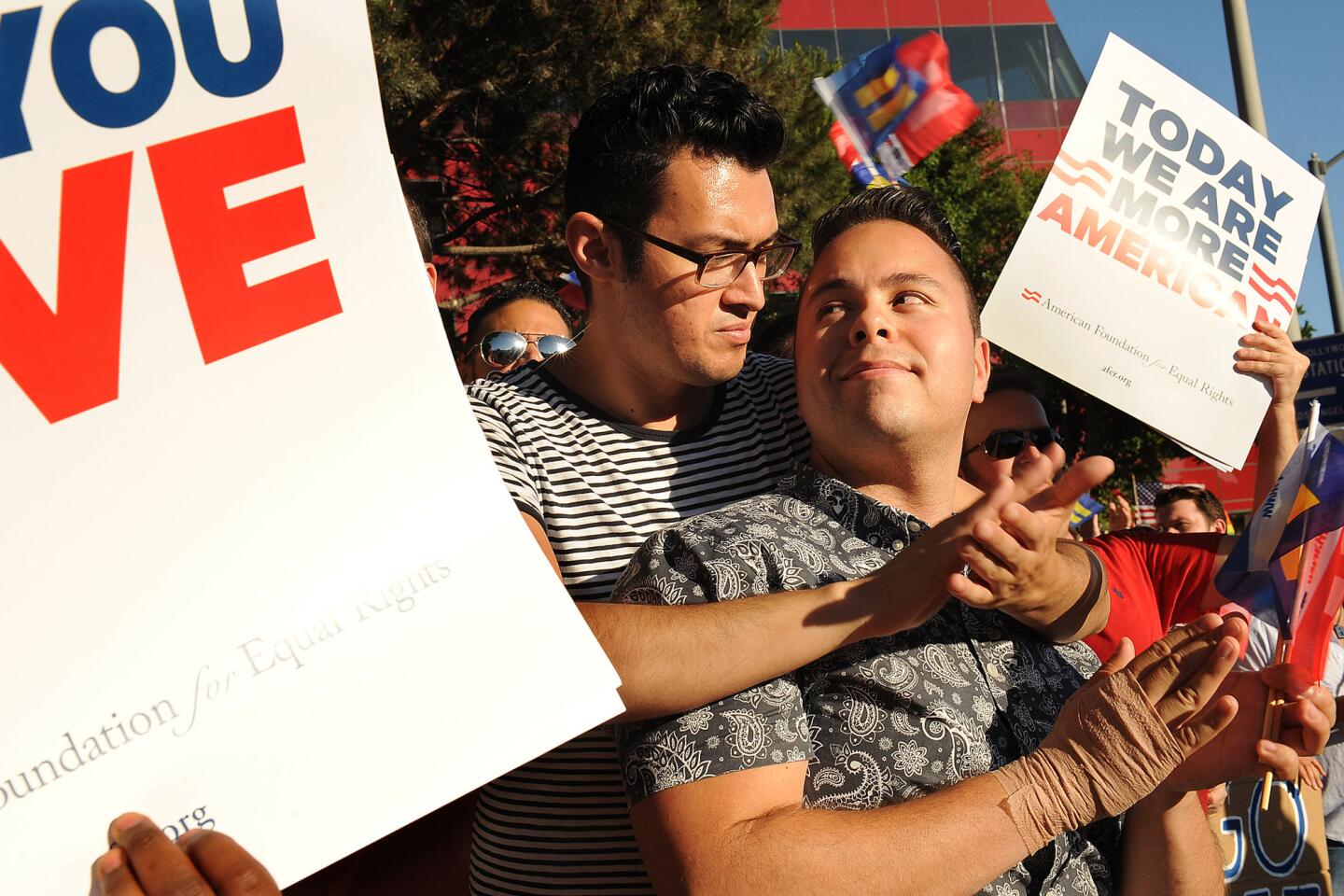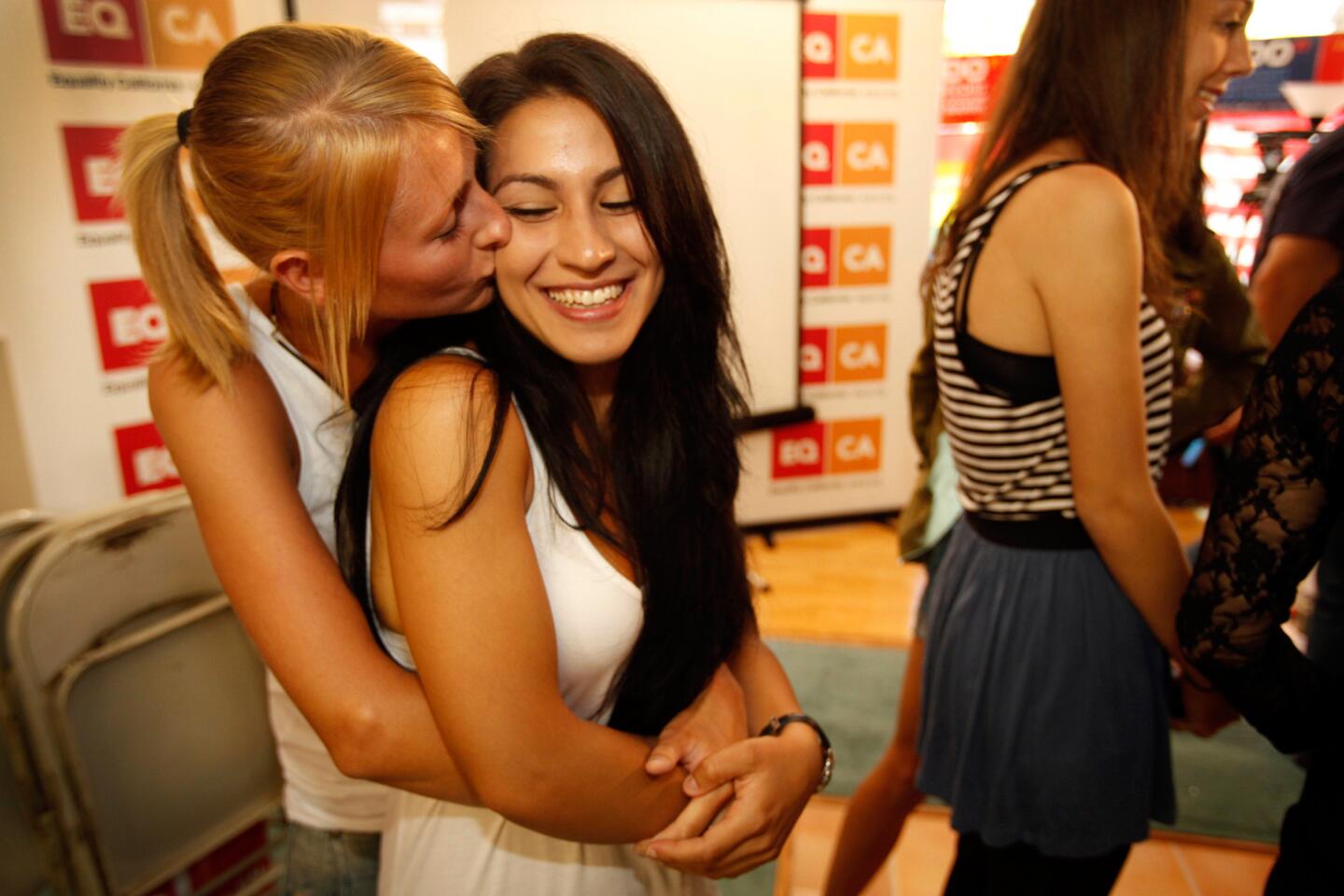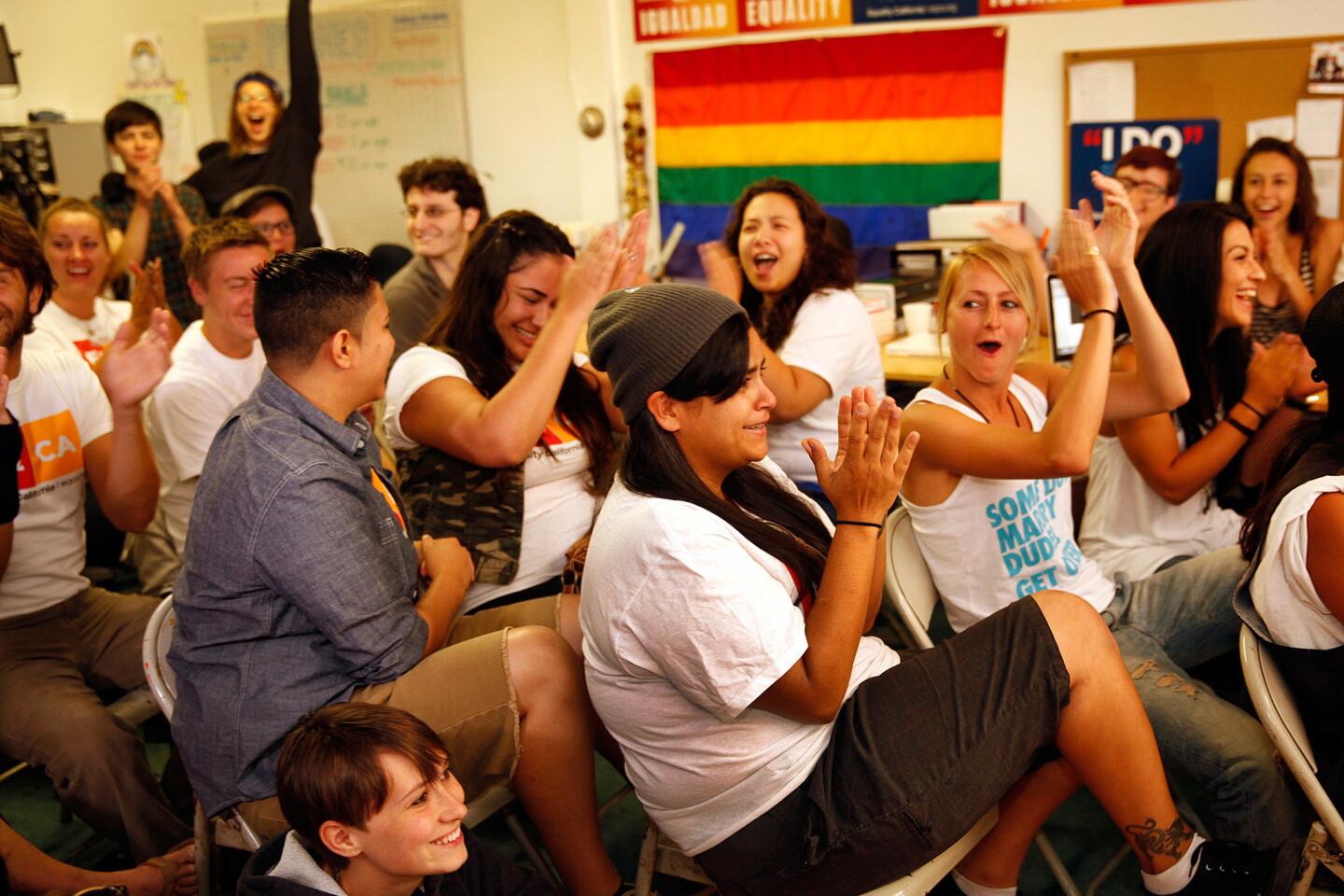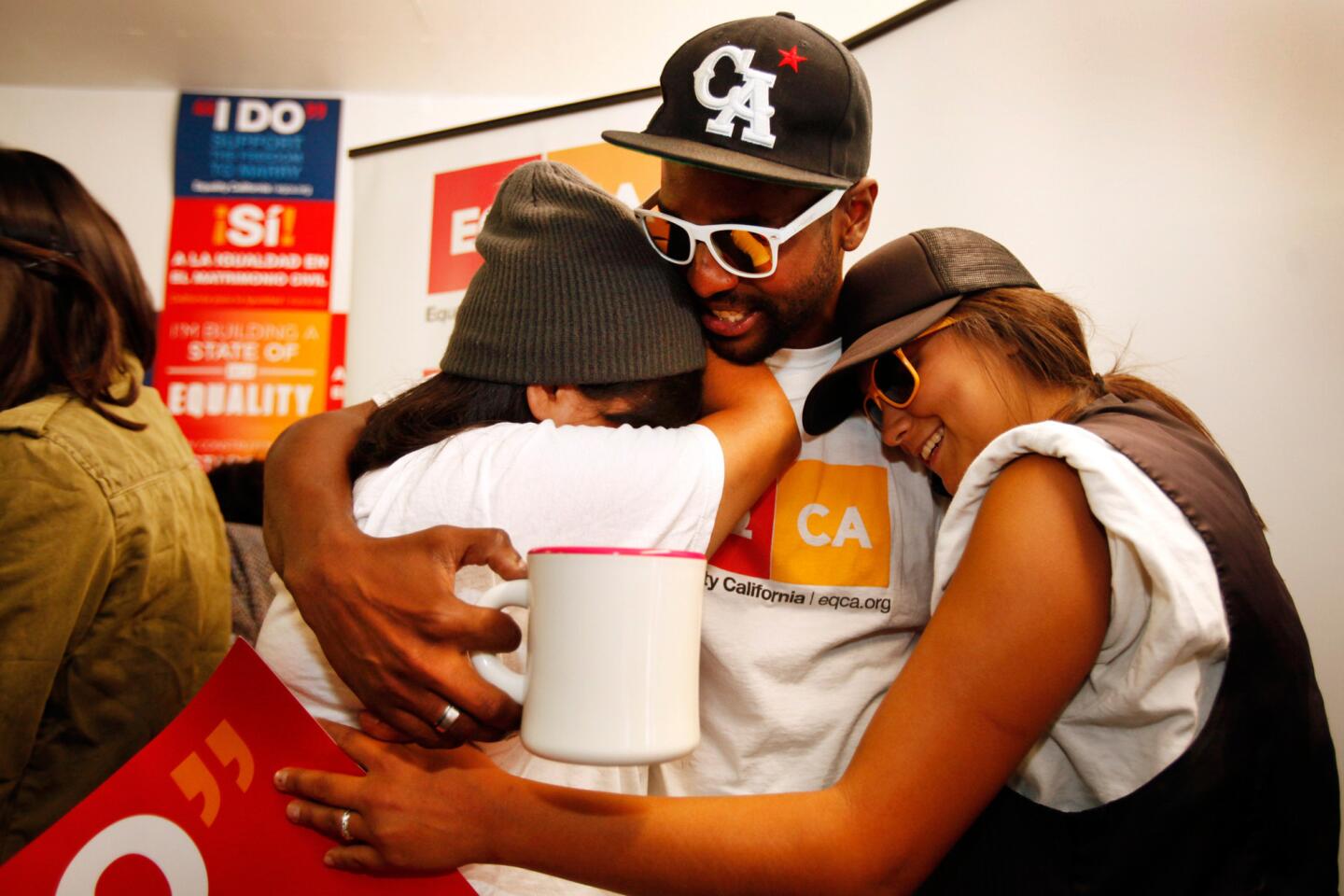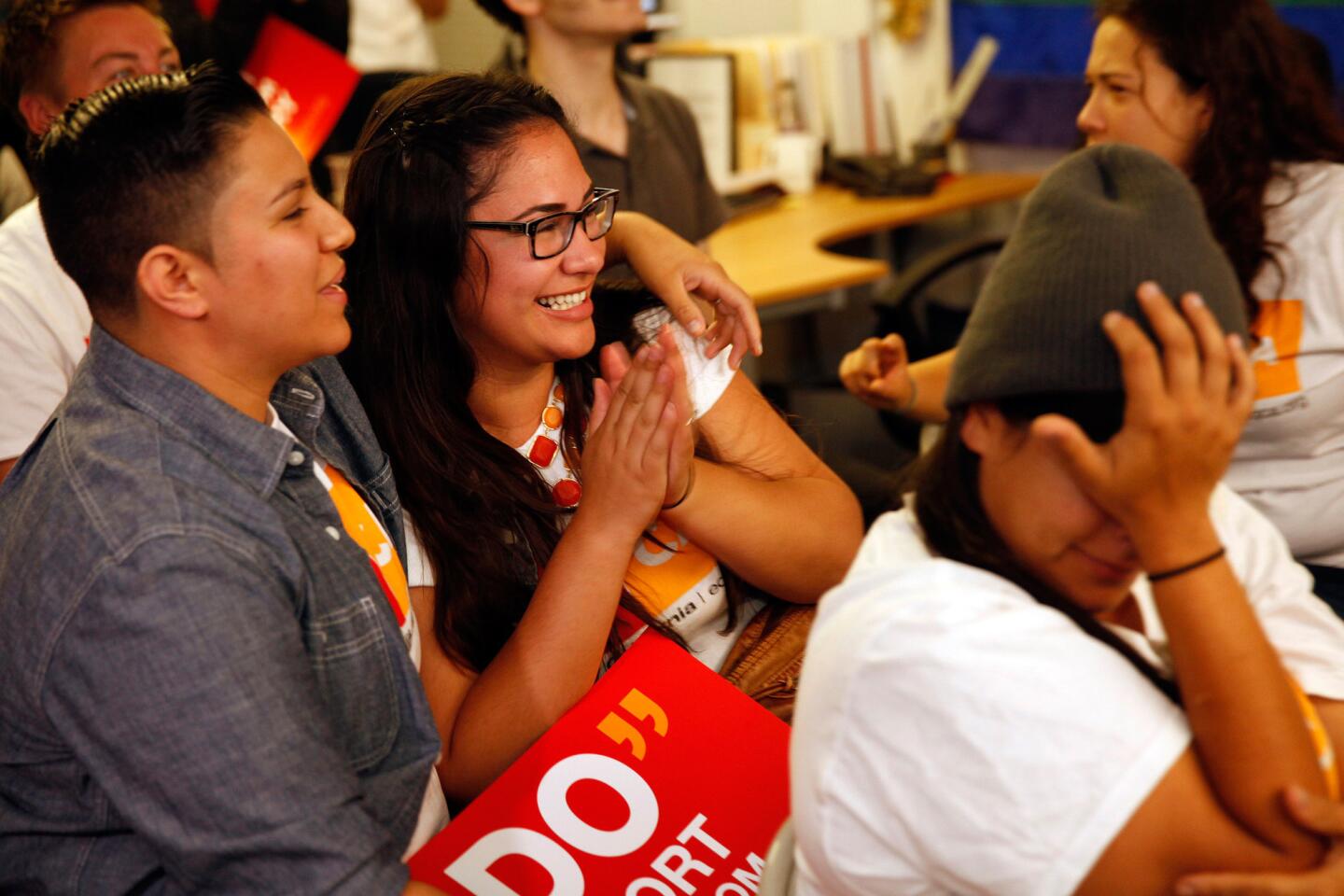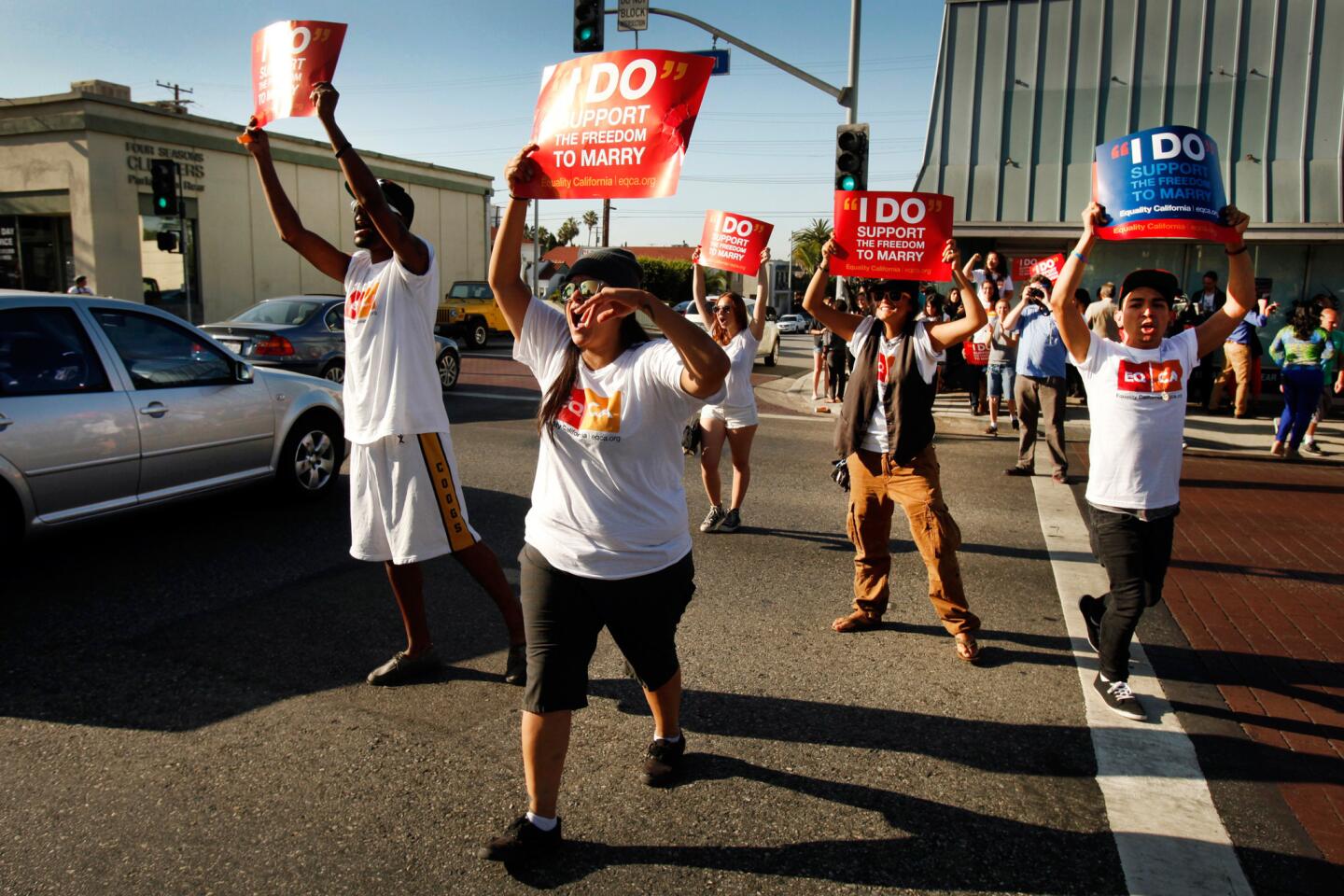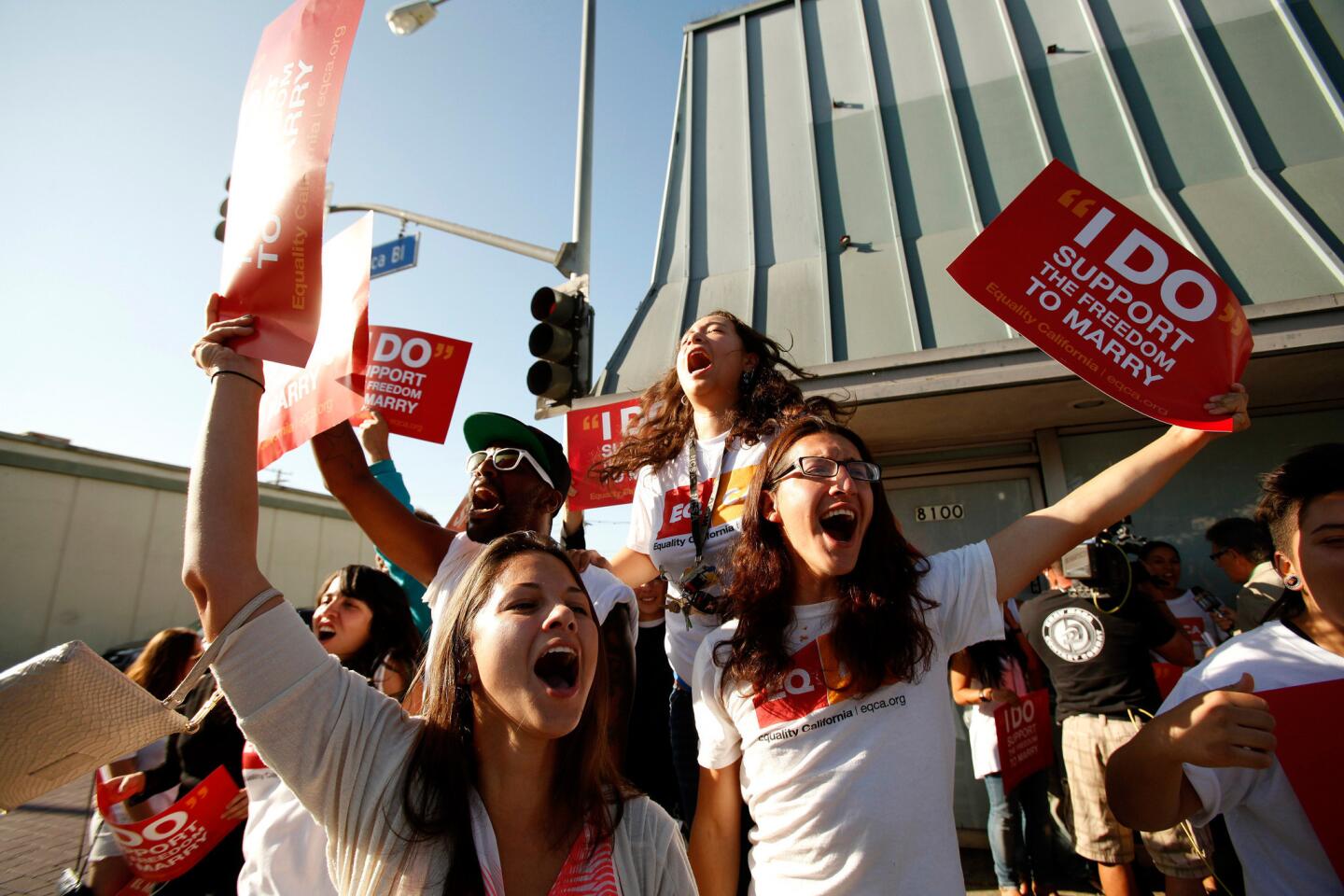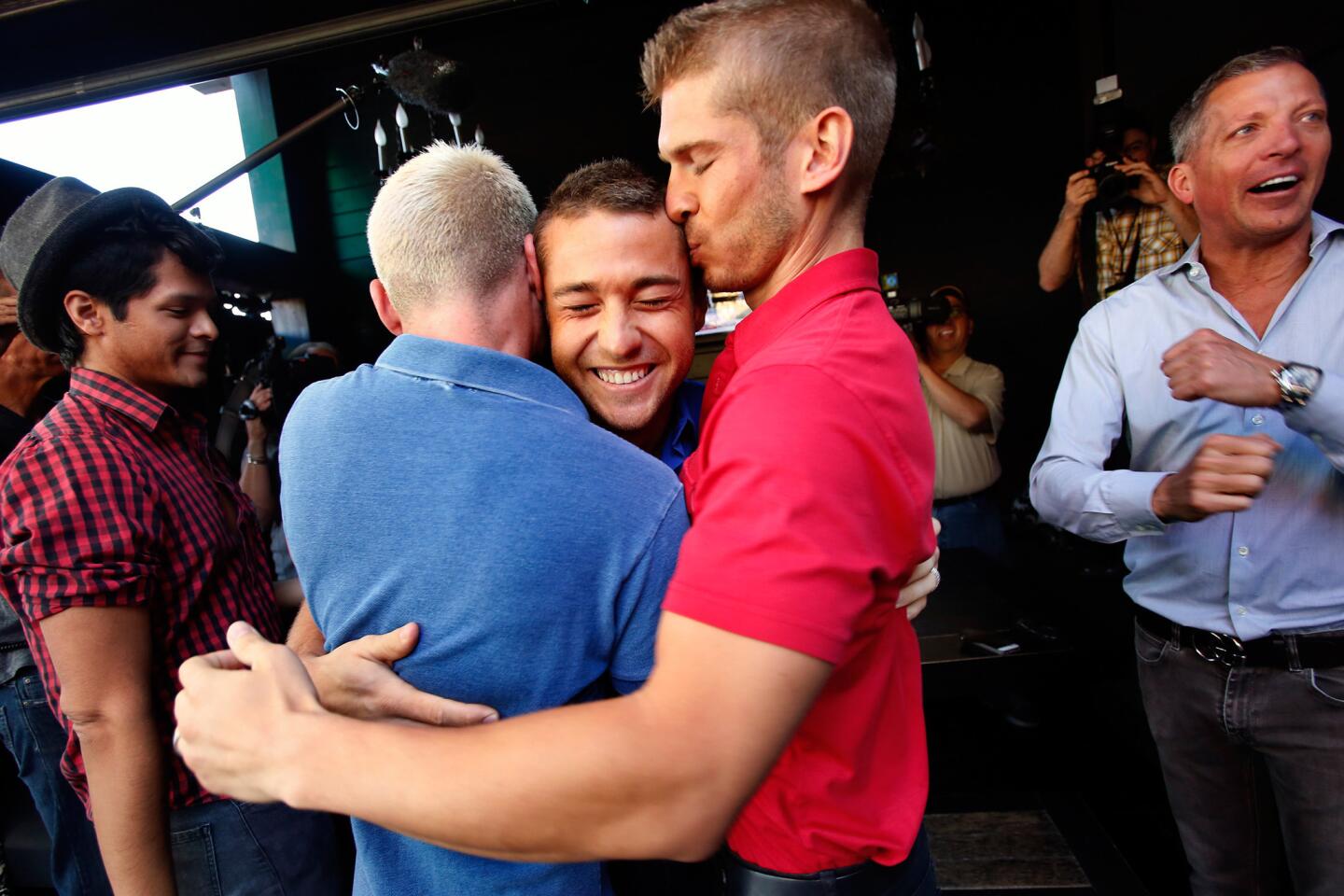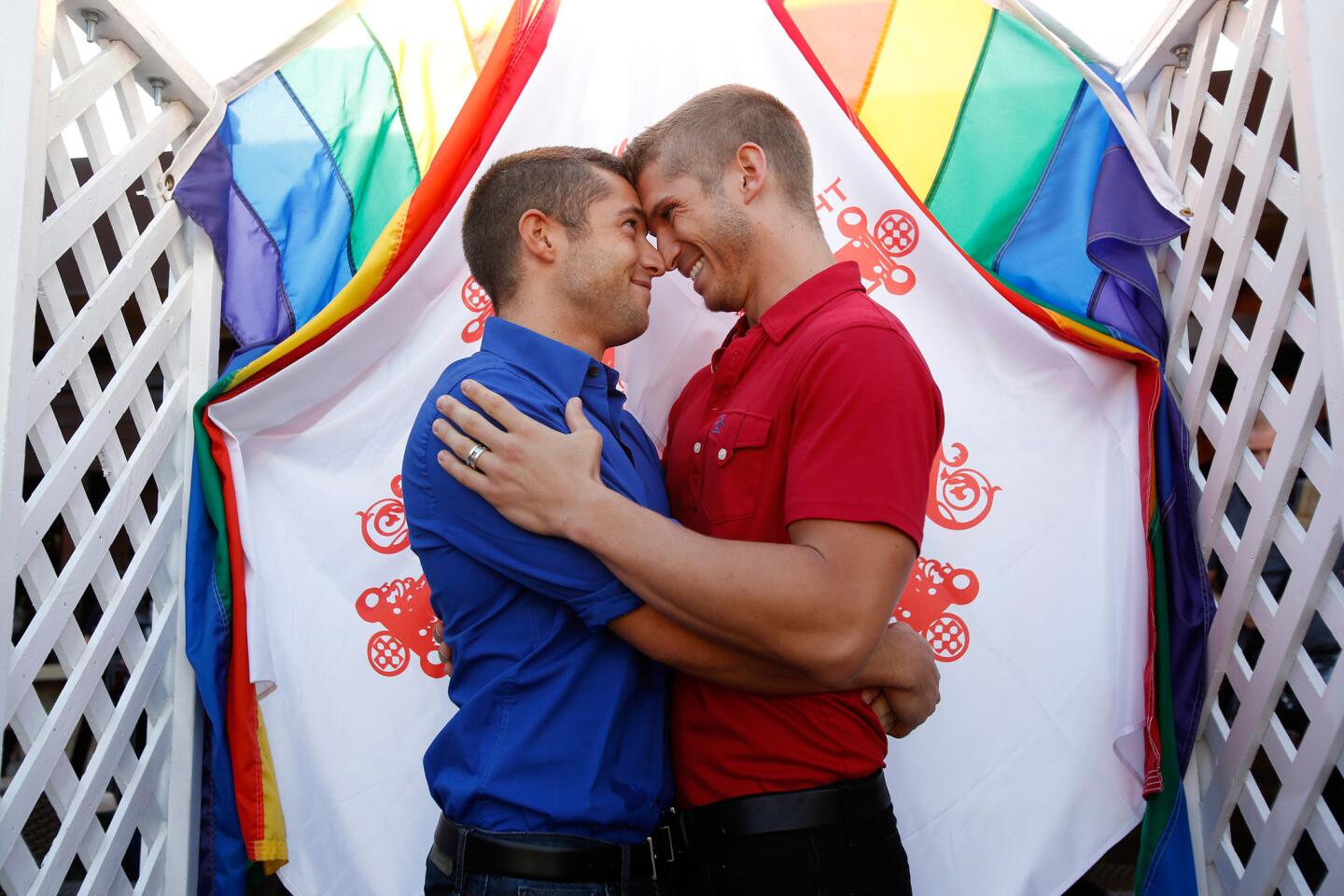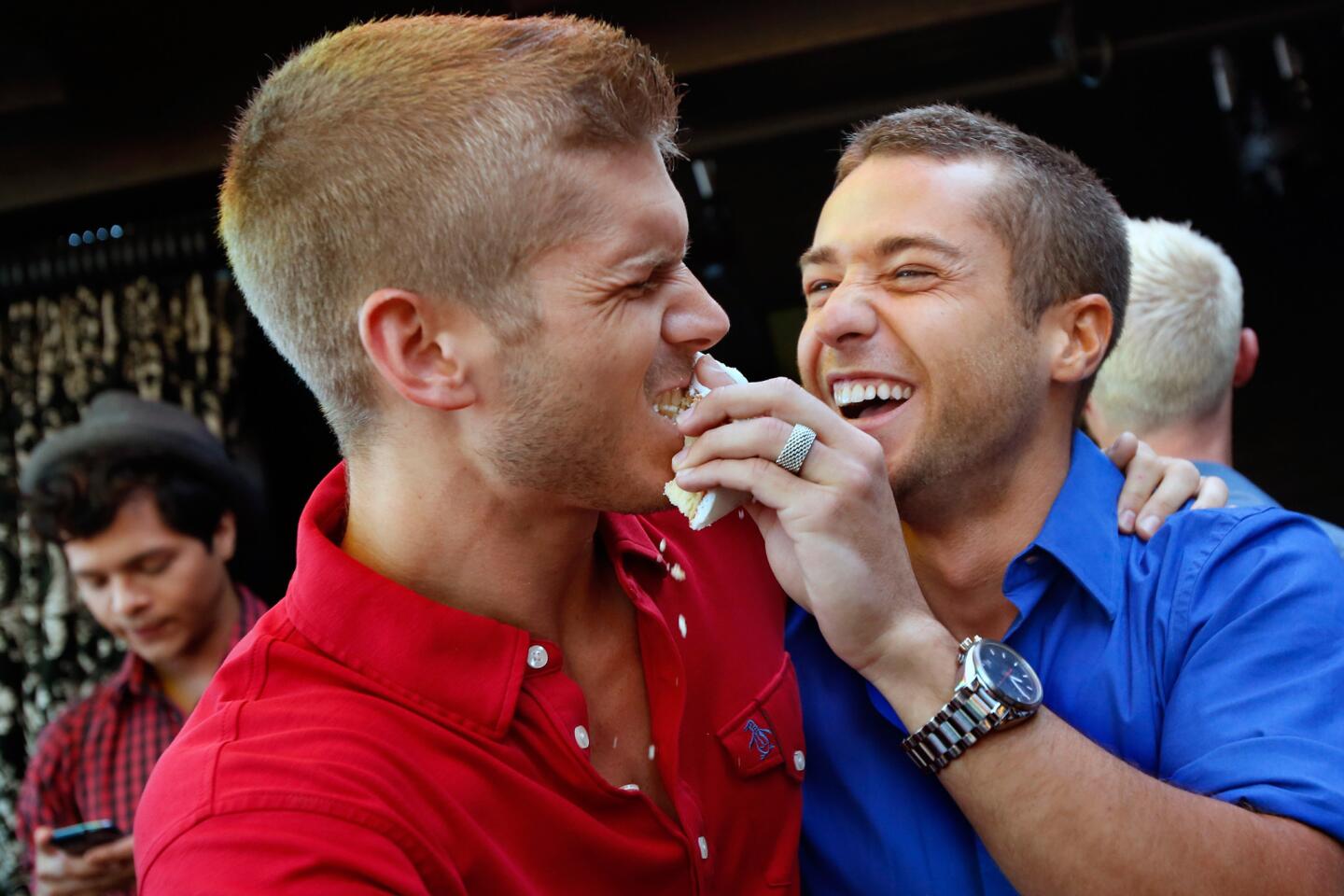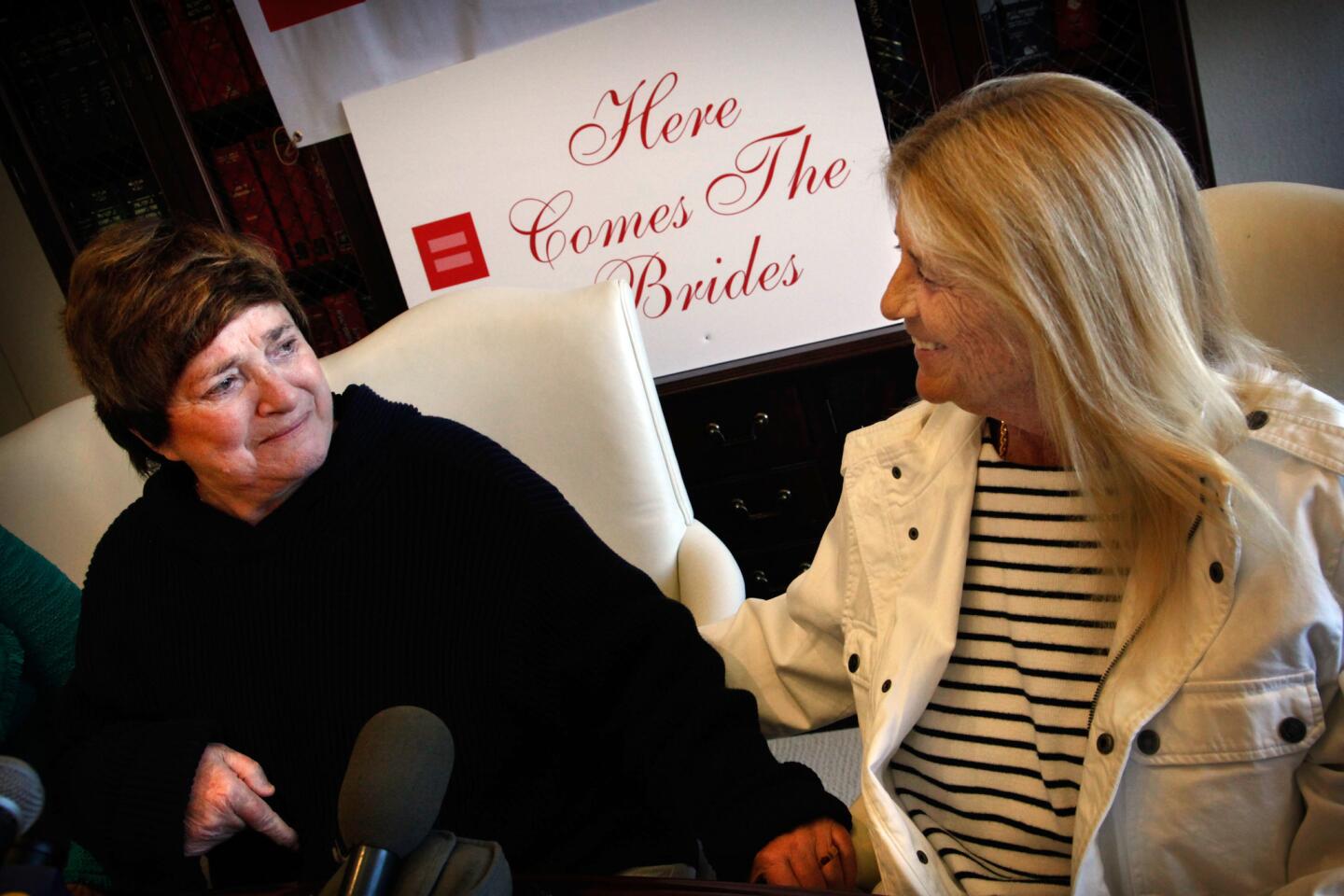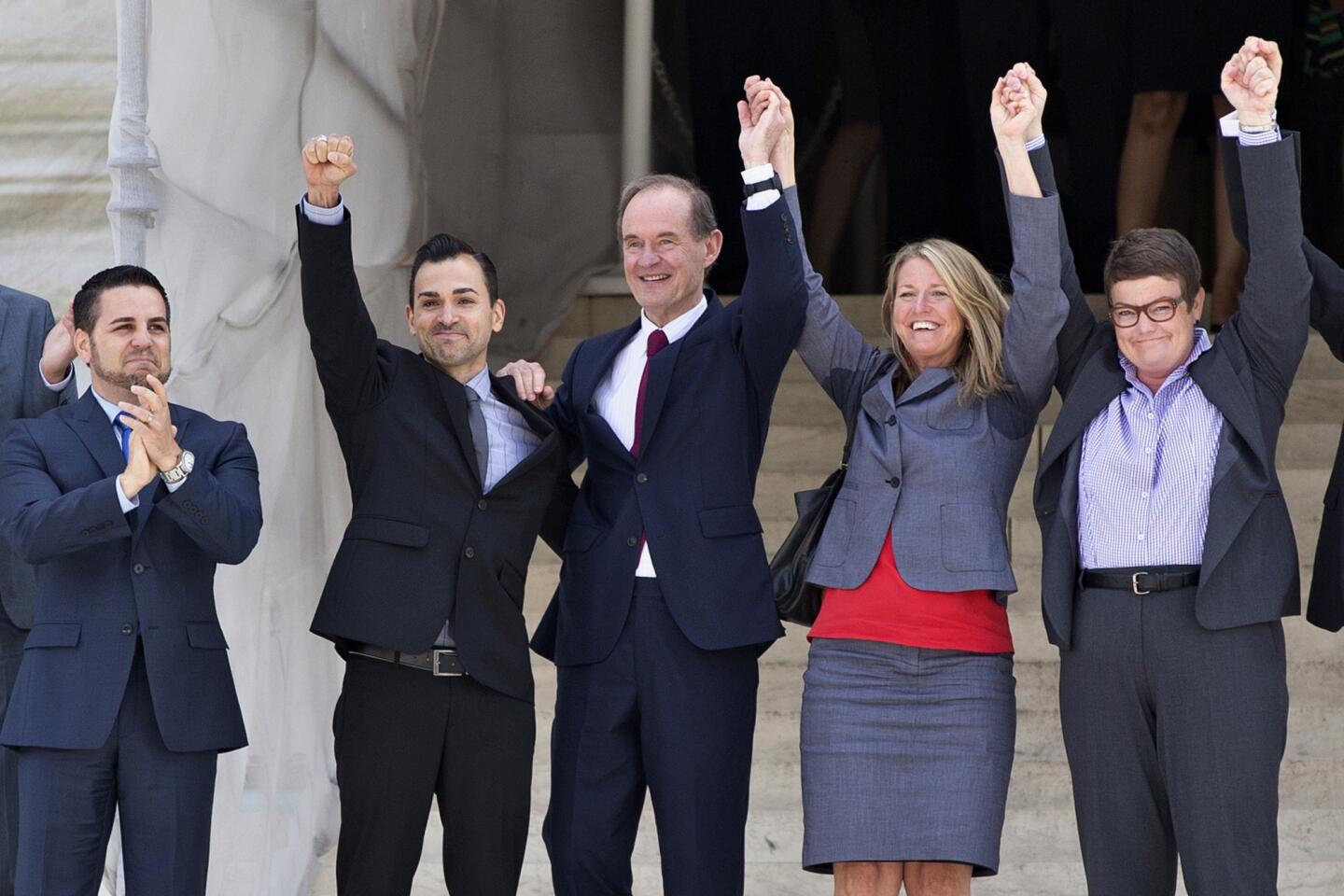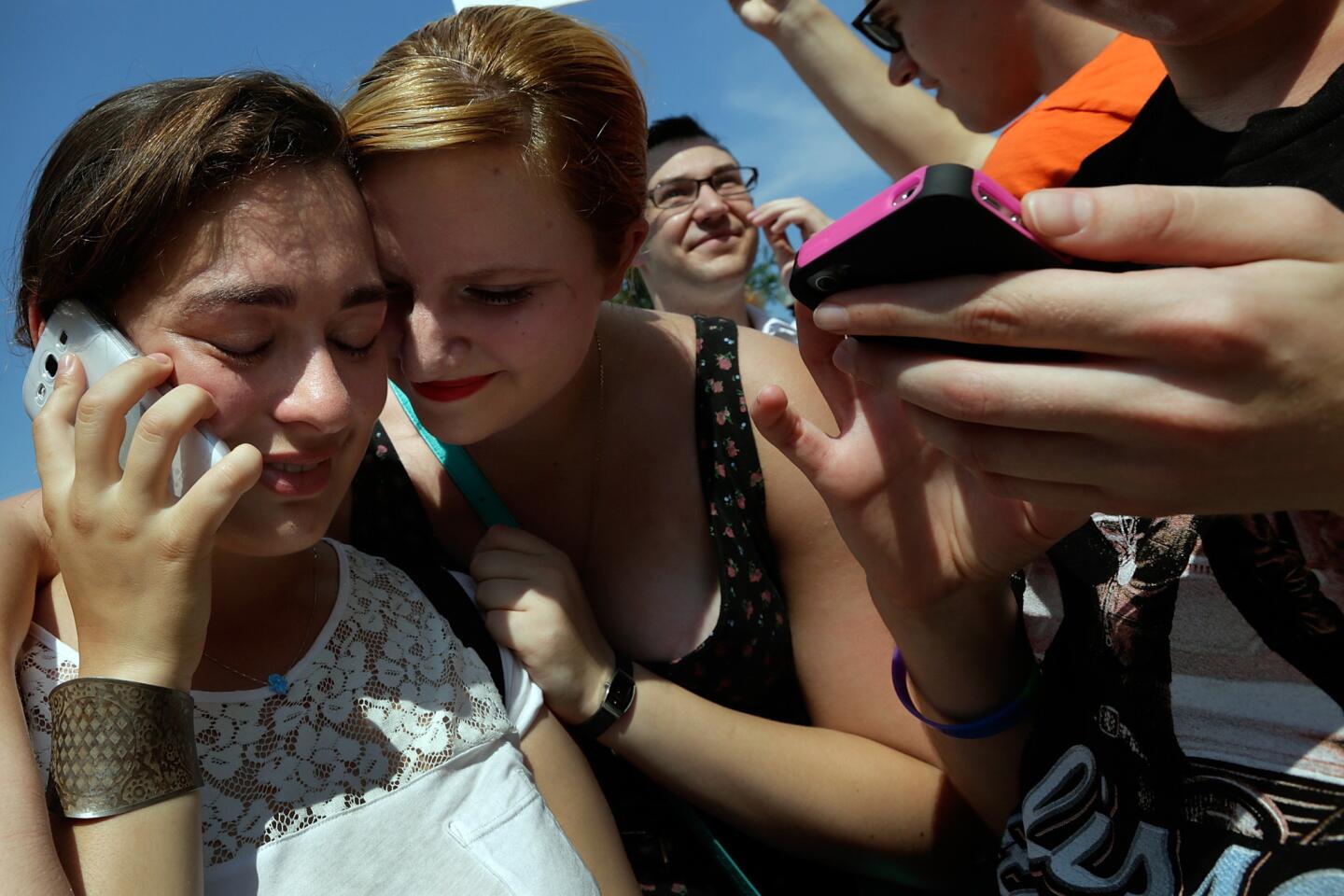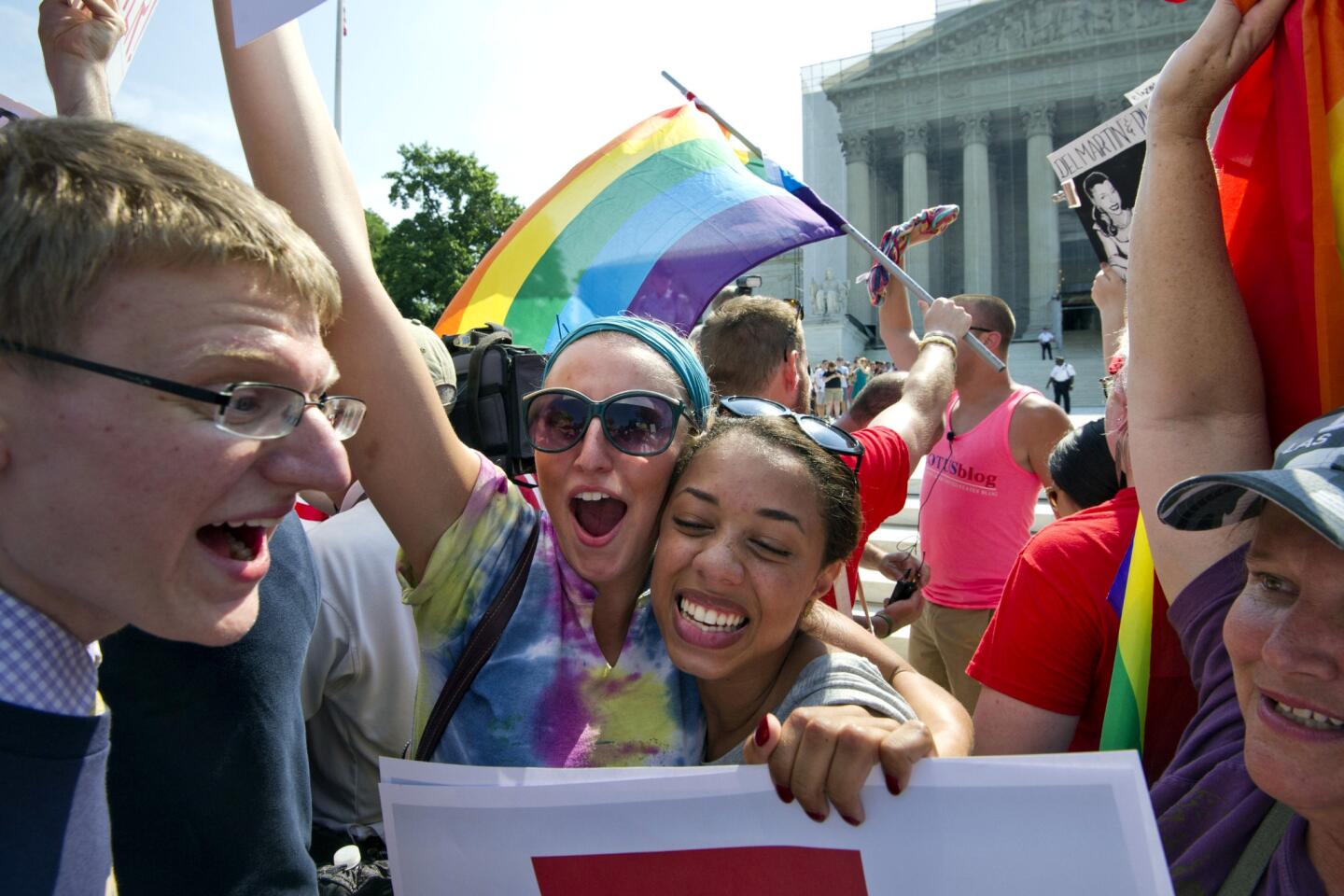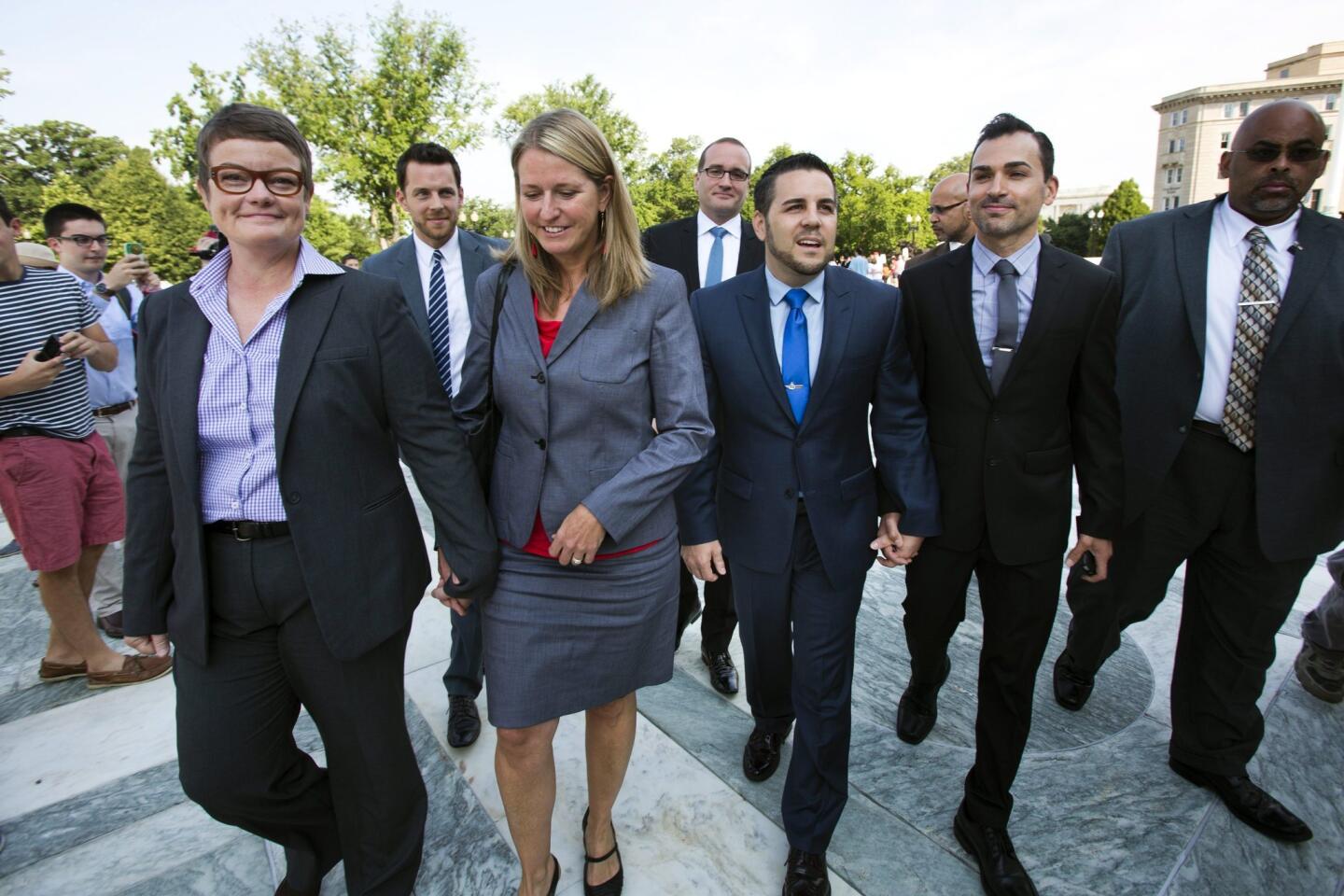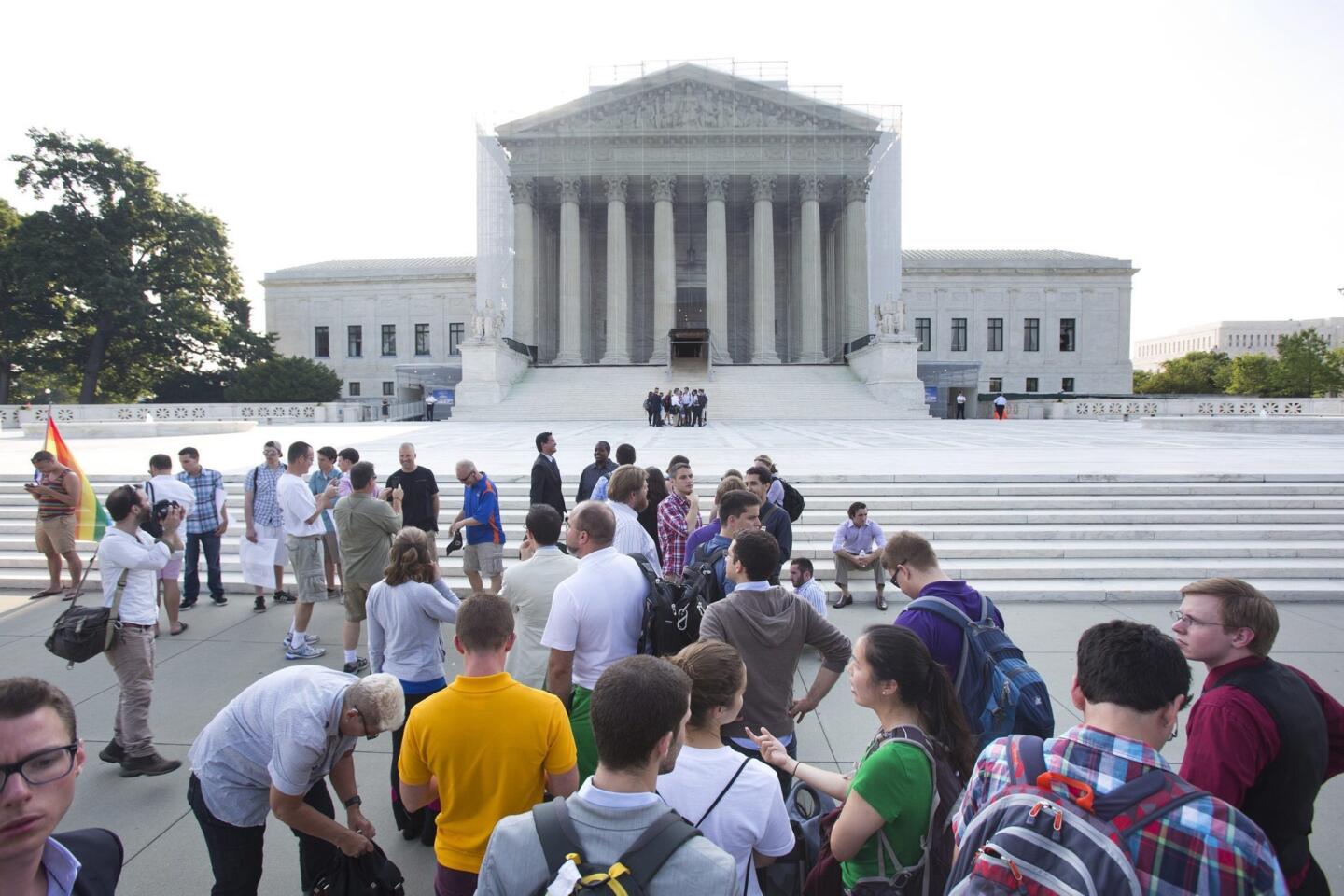Prop. 8 Judge Vaughn Walker: ‘I am not going to be in the parade’
- Share via
SAN FRANCISCO — Vaughn R. Walker, the San Francisco judge who issued the first ruling on the federal constitutionality of Proposition 8, said Wednesday that he believes the trial he presided over affected the outcome of the same-sex marriage cases decided by the Supreme Court.
“Subliminally, yes,” he said in an interview.
Now retired from the bench and working as a private mediator, Walker, 69, was expected to play a minor role in the battle over gay marriage.
But his 2010 decision overturning Proposition 8 was all that remained Wednesday after the Supreme Court ruled that opponents of gay marriage had no legal right to appeal it. State officials refused to do so.
Walker’s court was supposed to be a pit stop on the way to the Supreme Court. The attorneys who filed the federal lawsuit on behalf of two same-sex couples wanted a broad ruling that would legalize same-sex marriage across the country.
But Walker, then the chief judge of the Northern District court, said a trial court was supposed to determine facts. He posed several questions he wanted examined.
Can people change their sexual orientation? How would gay marriage hurt opposite-sex marriage? Do gays and lesbians have political power?
The trial produced 12 days of often riveting testimony and nationwide media coverage. The Supreme Court refused to allow Walker to televise the proceedings, but instant blogging provided immediate and complete coverage.
The trial “allowed the parties to put on the evidence, to make the arguments and to get a decision based not on what the judge thought or history or broad constitutional provisions but on the basis of evidence put in the record by witnesses who got on the stand and testified,” Walker said. “I think that makes a difference.”
He noted that he had suggested state officials appeal his decision to ensure the case would go before the higher courts. If that had happened, the Supreme Court might have ruled on the constitutional questions, rather than issuing a limited, procedural ruling.
But he said he understood that their political opposition to Proposition 8 made that course difficult.
Walker reflected that changing institutions through constitutional cases was often a slow process. The Supreme Court did not overturn laws banning interracial marriage until nearly 20 years after the California Supreme Court ruled that interracial couples had the right to marry, he observed.
Walker, lean and silver-haired with a baritone voice, had a commanding presence in the courtroom. The Republican appointee was randomly selected to preside over the Proposition 8 case, and he just happened to be gay.
Walker’s sexual orientation was well known in the legal community — he was open about it — but he did not discuss it publicly until he decided to retire from the bench. The backers of Proposition 8 then said he should have stepped aside because he had a conflict of interest, but a federal appeals court disagreed.
Walker declined to discuss how he personally felt as a gay man about Wednesday’s same-sex marriage rulings.
“I am not going to be in the parade Saturday,” he quipped.
ALSO:
Prop. 8: Lt. Gov. Gavin Newsom avoids ‘vindication’ as he smiles
Prop. 8: John Roberts’ lesbian cousin ‘absolutely’ proud of ruling
Obama calls to congratulate Prop. 8 plaintiffs from Air Force One
Twitter: @mauradolan
More to Read
Sign up for Essential California
The most important California stories and recommendations in your inbox every morning.
You may occasionally receive promotional content from the Los Angeles Times.
